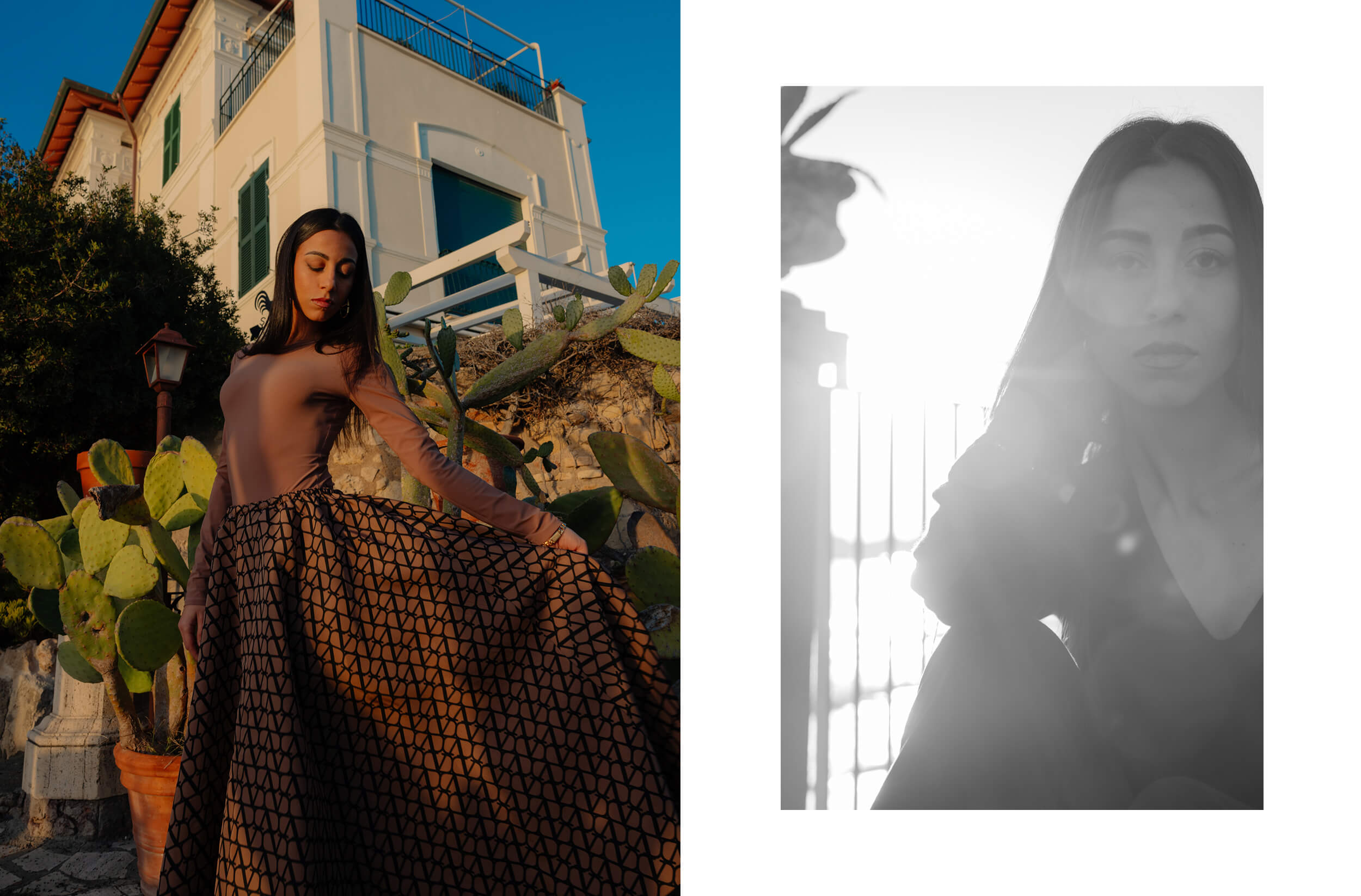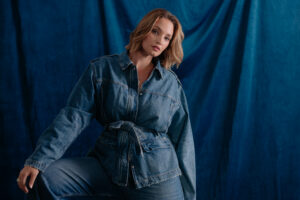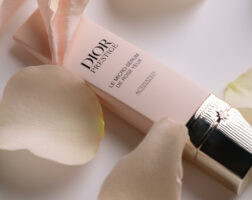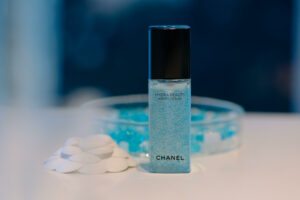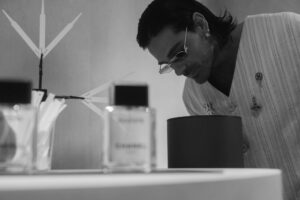The sea is in the background.
The sunset marks the end of the horizon, in the distance.
And there’s a dreamer in front of us, more determined than ever to assert herself as she is, teetering between emotions and awareness.
Benedetta Piccioli, model and makeup artist, takes us on a journey where beauty is uniqueness, creativity is inclusion, and home is not a place but the people you love. Starting with the family, in line with the inspirations and ideals guiding the creation of Maison Valentino‘s clothing and Valentino Beauty makeup line, Benedetta has inherited the value of representation. Reminding us that, sometimes, to go “beyond,” all it takes is one more step forward.
Through your eyes and emotions, how would you describe yourself today?
I’m certainly a dreamer.
I don’t consider myself an ambitious person in the sense that I wouldn’t give up everything, sacrifice my entire private life for a certain work goal. At the same time, though, I feel very determined to know what I want and what I don’t want, at least at this moment. I also feel like an eternal Peter Pan, in some ways, sometimes naive, sometimes whimsical, but I am also much more self-aware than I was a few years ago. I have understood what I want, and I am working in that direction to strive for those goals, both personal and professional.
Perhaps before, I paid more attention to other people’s advice; now, however, I trust myself a bit more because, as I tell others when giving advice, in the end, you know what’s right for you. It sounds cliché, but it’s true.
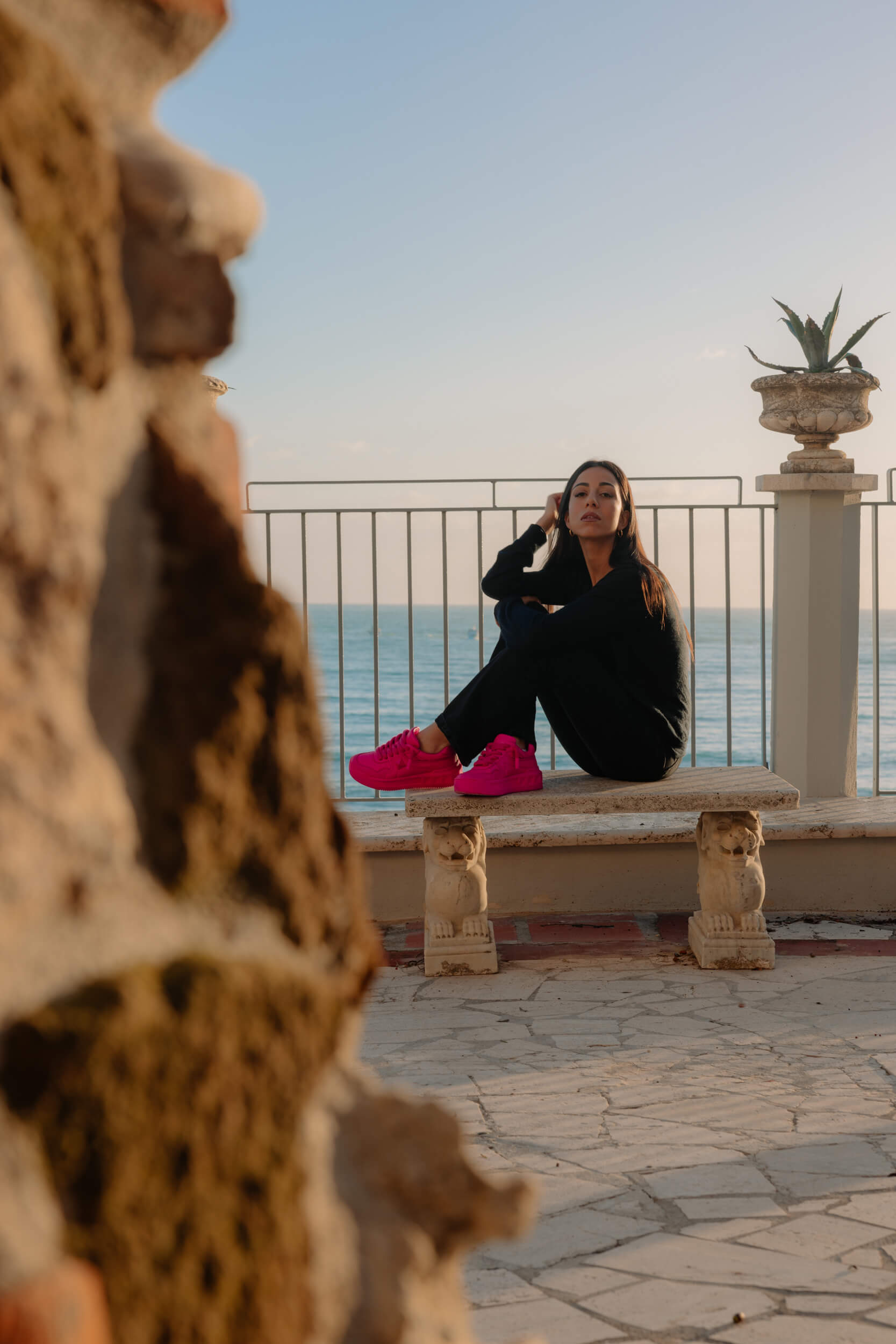
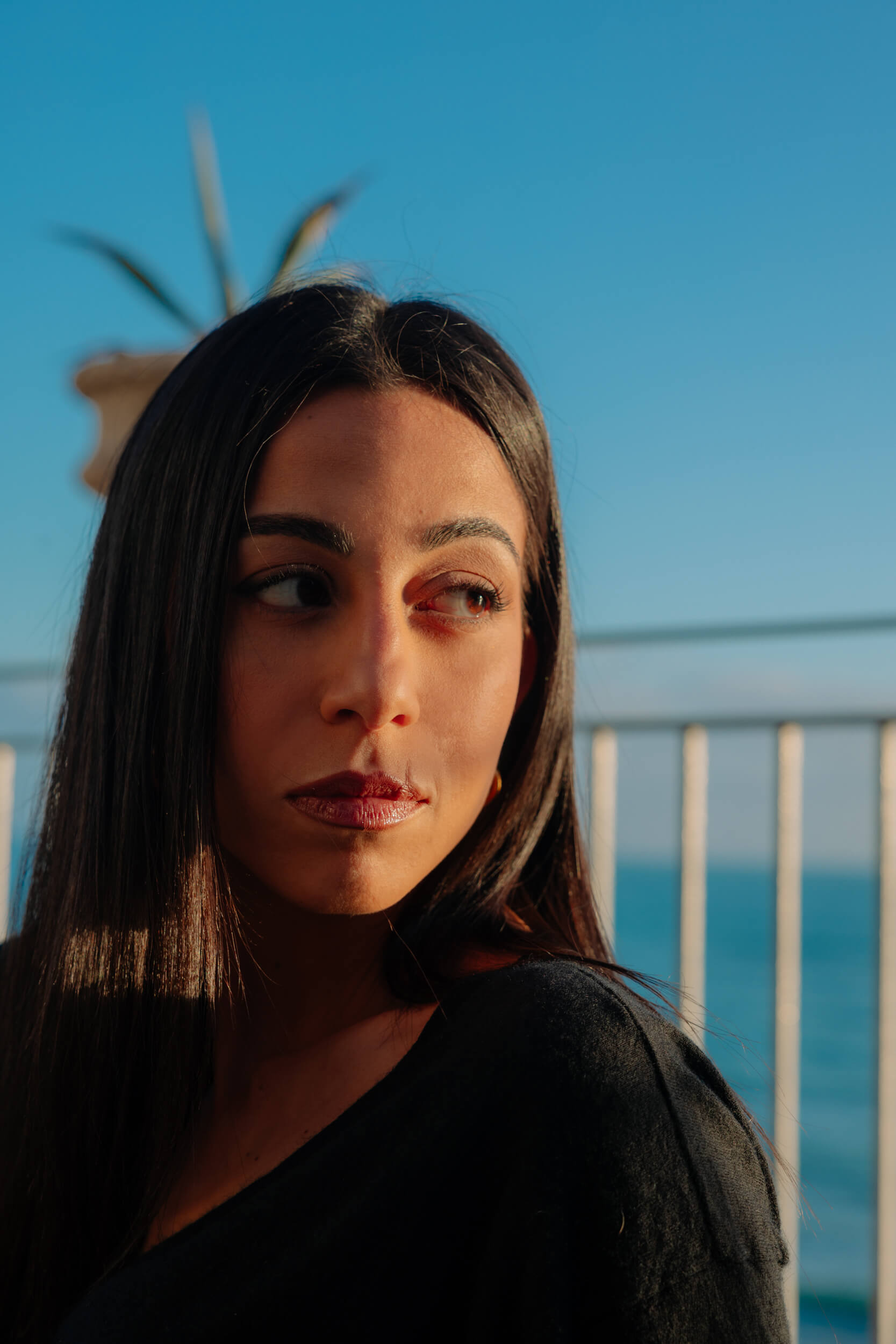
Representation and self-awareness are often discussed. How important is it for you, in the world you work in, to talk about representation?
Representation is the means through which a certain message is conveyed, so it is crucial, both for beauty and for fashion. My father always says that an image is worth more than a written message because images have a stronger impact than words. So, in my opinion, representation is fundamental, and images carry a lot of weight. That’s why it’s important that a message is conveyed optimally from a visual point of view, as it is the first to arrive. Take Valentino, for example: undoubtedly, seeing a skirt in the men’s collection speaks more than any slogan about equality because you understand that it is a normal thing simply by seeing it.
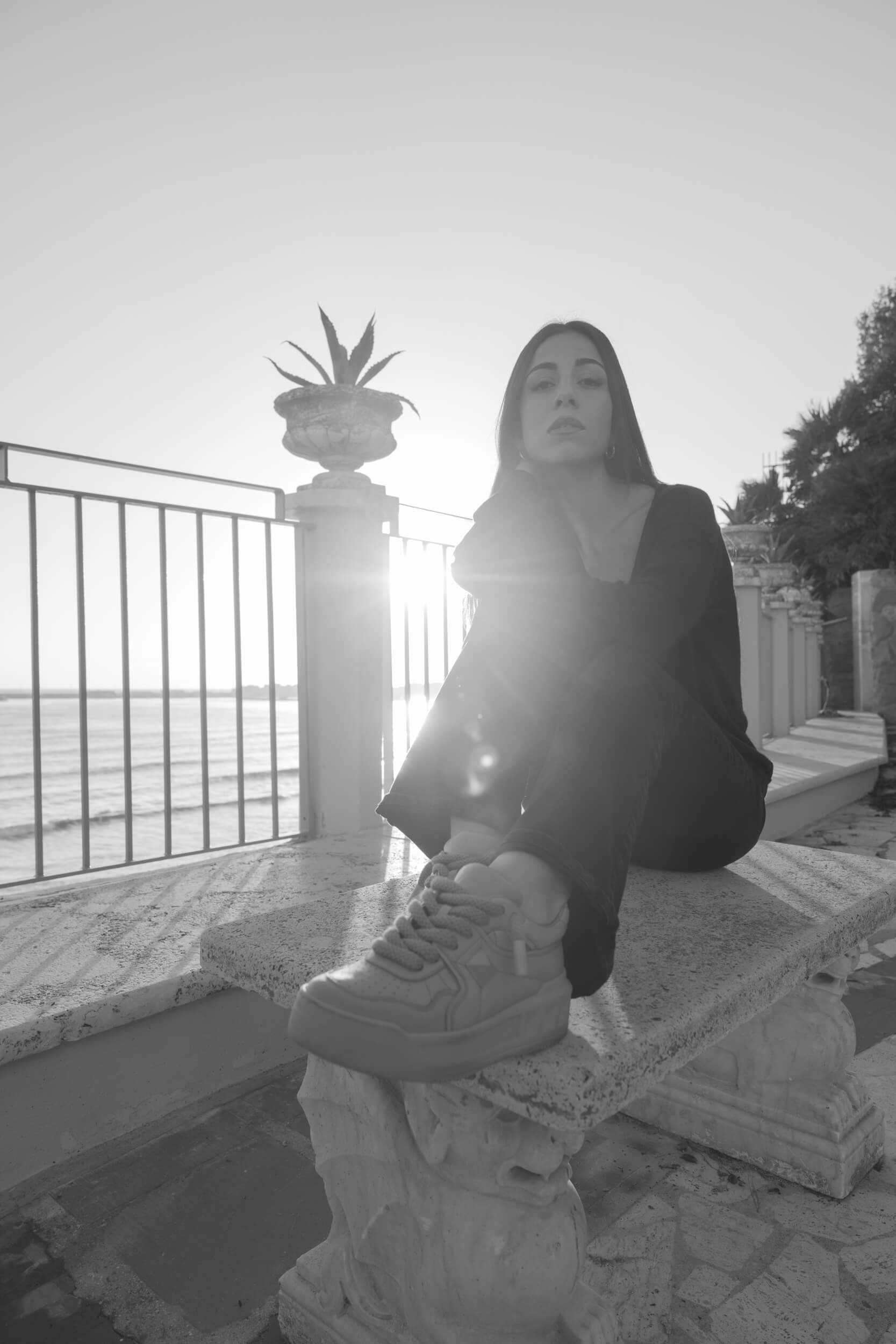
“…it’s important that a message is conveyed optimally from a visual point of view, as it is the first to arrive.”
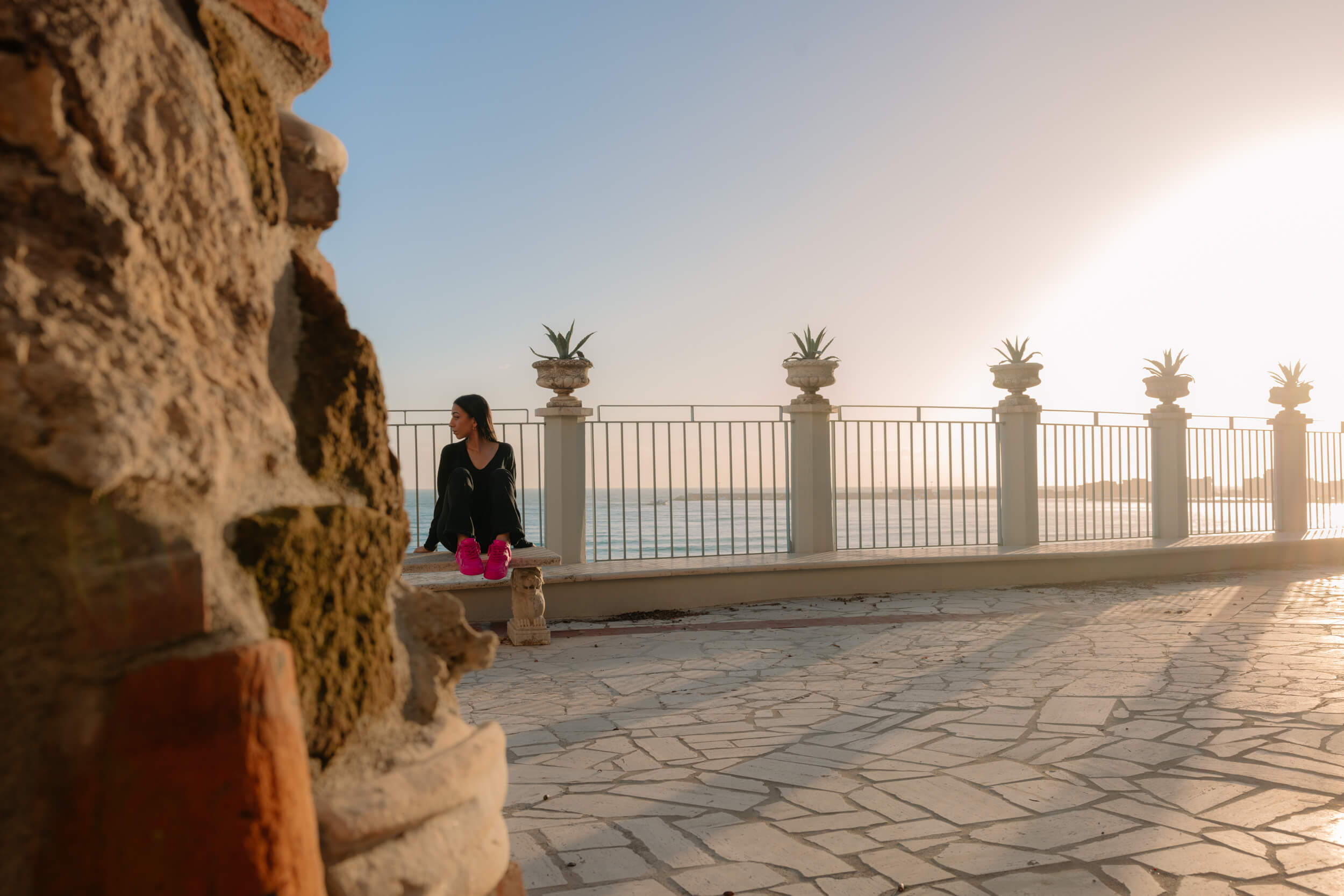
In the end, these are all values that can be communicated through beauty, without the need for provocations…
Yes, and the impact may even be stronger than a written message on Instagram, no matter how rightfully charged with anger it may be. Instead, seeing transparency, embroidery games in fashion, as is the case with Valentino and the latest collection in particular, without wanting to convey the message of sensuality but rather the freedom to be in one’s body as one wishes, is more impactful than a slogan expressing resentment towards a certain situation we are experiencing.
In my opinion, it is crucial for everyone to be part of that process as they can, so it’s right for fashion to participate because fashion is also a political statement. I am happy and proud when these things happen, and Maison Valentino itself takes a stand in favor of the causes it deems right. It is essential for everyone to do something in their own small way in everyday life, and of course, influential personalities can do even more; so, I believe it’s right for them and the brands to be part of this movement.
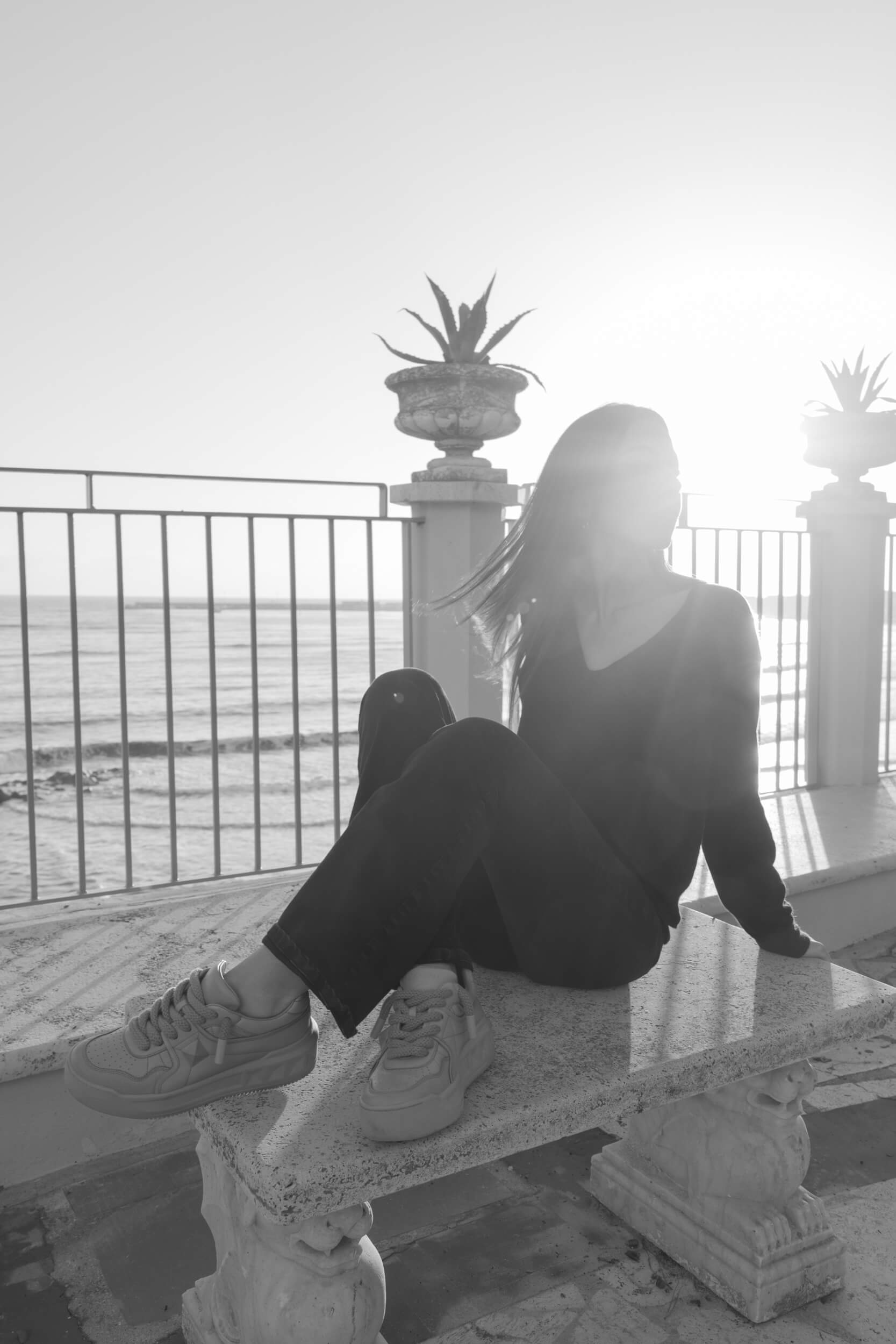
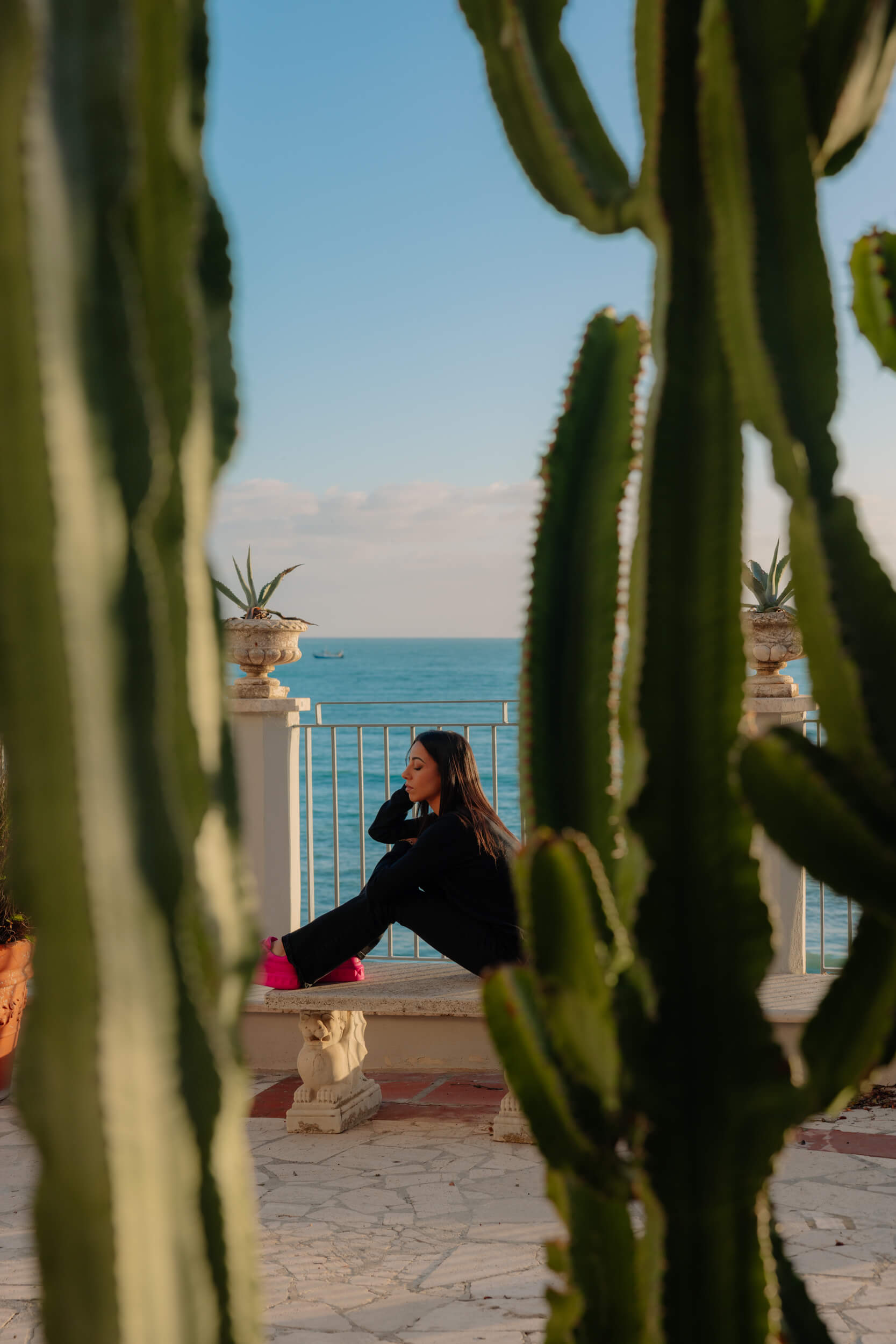
You are also a makeup artist. What’s your first memory related to the beauty world?
I took a makeup course mainly because it was something I wanted to do for many years, both for myself and to better integrate into the marketing world and have an additional specialization, with a more comprehensive view. I must say that my experience at L’Oréal helped me a lot, and I was one of those people who knew the product, the promise, how to use it, tricks, and tips.
My mom has always cared a lot about makeup, not as a tool to transform yourself but to take care of yourself. However, when I was younger, she always presented it to me as something reserved for adults. Nevertheless, she started telling me when I was in middle school that I could wear mascara or she would always do my makeup for Carnival parties. Those are the first memories I have related to makeup. My mom always showed me makeup as a game at first, until in middle school, I started wearing mascara and lipstick occasionally. She always encouraged me to wear lipstick, saying, “Look, you can put it on quickly, and you’re ready”.
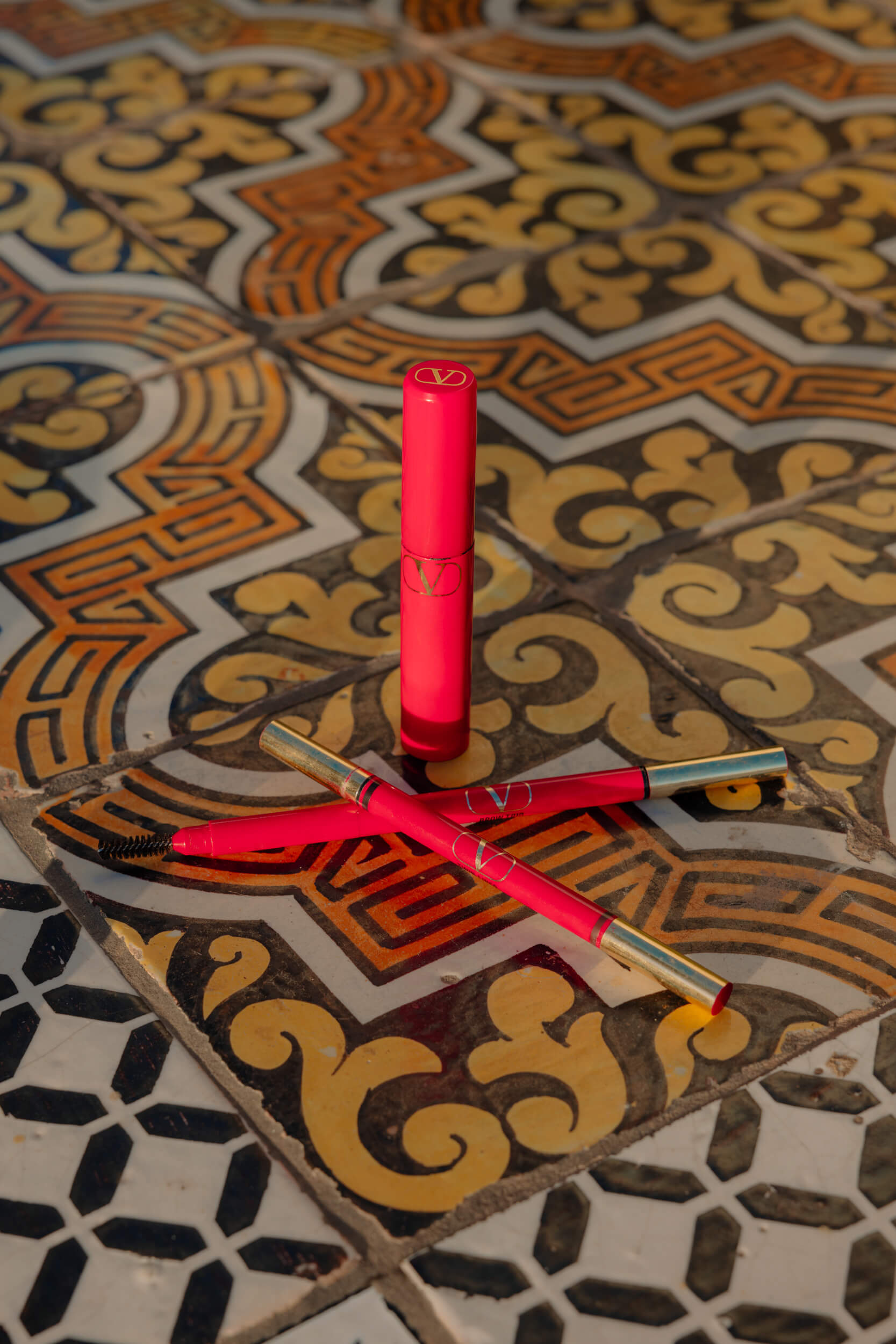
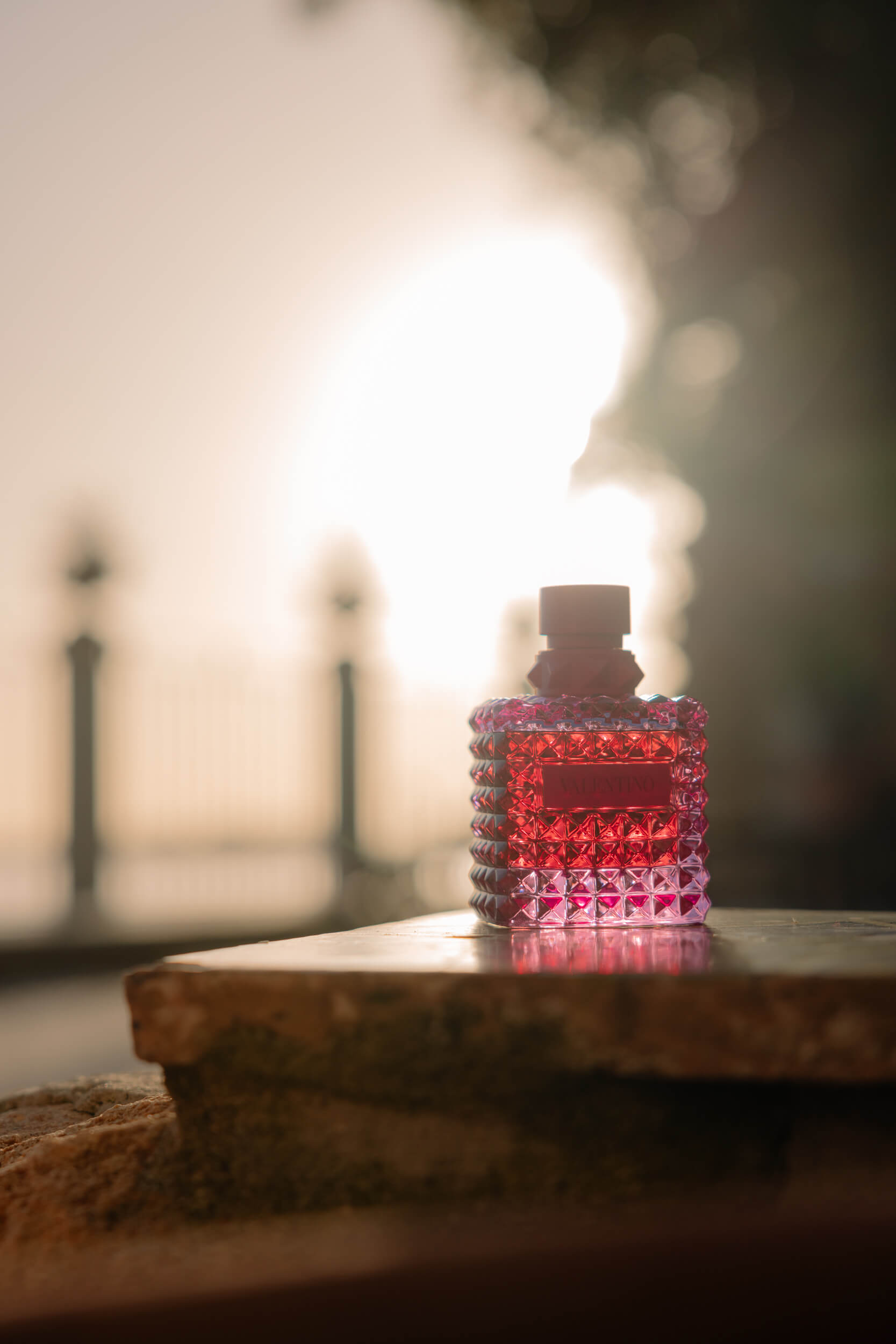
Clothes seem to create a sort of connection with people: both with those who make them and those who wear them. Which dress/creation do you have a particular connection with?
There have been dresses that, when my father created them, he already knew I would like them. Many times at fashion shows, he chooses the clothes that my sister, my mom, and I wear. There is a strong connection between my father and me; we are very close, which is why he knows exactly what my style is. I really like dresses that I call “princess-like“, so transparent, long, with trains, straight out of Disney movies, like the last one I wore in Paris at Château Chantilly. My father knew I would fall in love with it at first sight because it’s pink, princess-like, perfect for a runway show at the castle. My sister, on the other hand, likes slightly more modern dresses with a street style, and my father knows that very well.
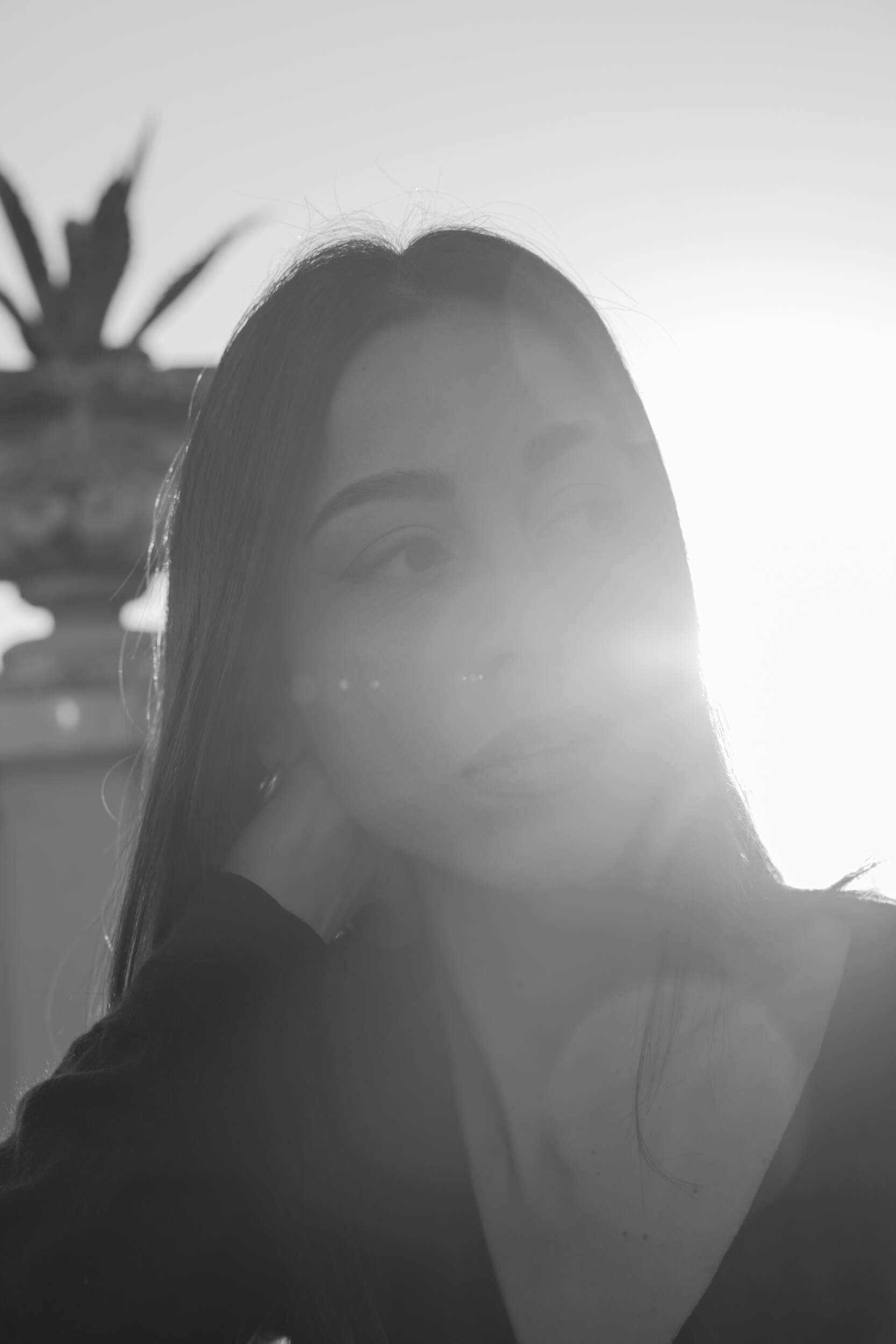
“There is a strong connection between my father and me; we are very close, which is why he knows exactly what my style is.”
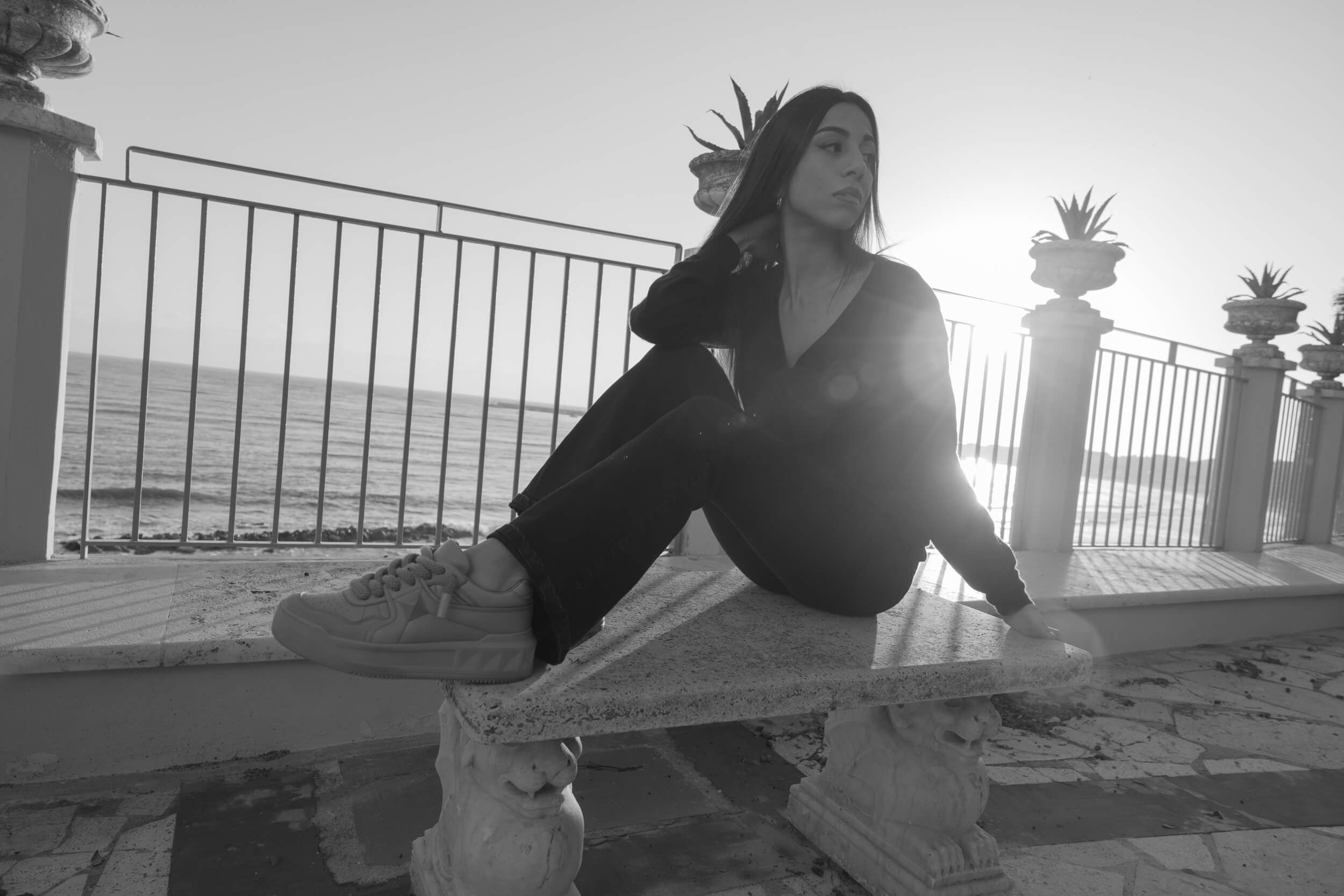
How do you express your personal creativity through makeup?
In my opinion, makeup is self-expression and creativity, as well as correction of flaws or enhancement. I have always liked a certain style of makeup, at least on myself: bold-colored lipsticks, lots of mascara, a very glowy base because it seems to give me naturalness while bringing out the best version of me. I also like to dare, but I know that if I want to play it safe, I go for what I am sure suits me well. With makeup, I like to be creative, but only to a certain extent. I step out of my comfort zone if there’s a trend I want to replicate, but if there’s an occasion where I want to play it safe, I rarely play with creativity but stick to the style that has been mine for years.
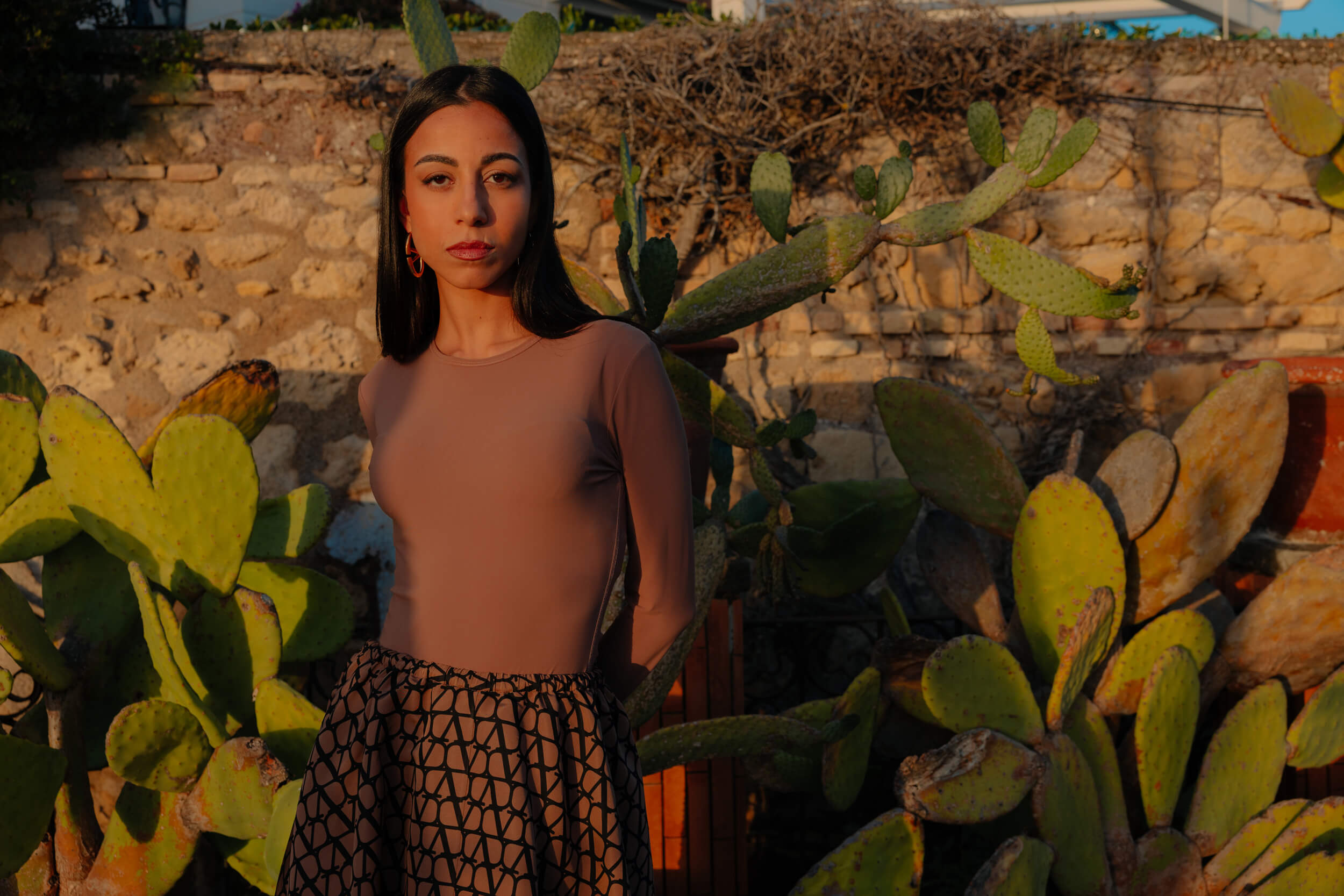
As an insider in these industries and as a face of a new generation, what changes do you want to contribute to or conversations do you want to open around the beauty debate and beyond?
Certainly, and this is a concept that I think needs to be emphasized, I believe everyone has their own beauty, which is uniqueness and not homogenization. We are living in a time where there is a strong tendency towards homogenization, with the triumph of plastic surgery, which I think is right but only if aimed at improvement and not at resembling the same prototype that wants us all to be the same. Beauty is also inclusivity, not just adhering to a certain mold. The diversity issue is also perfectly relevant: what is different, even if we are not used to it, can be beautiful, and this applies to gender, race, any type of diversity.
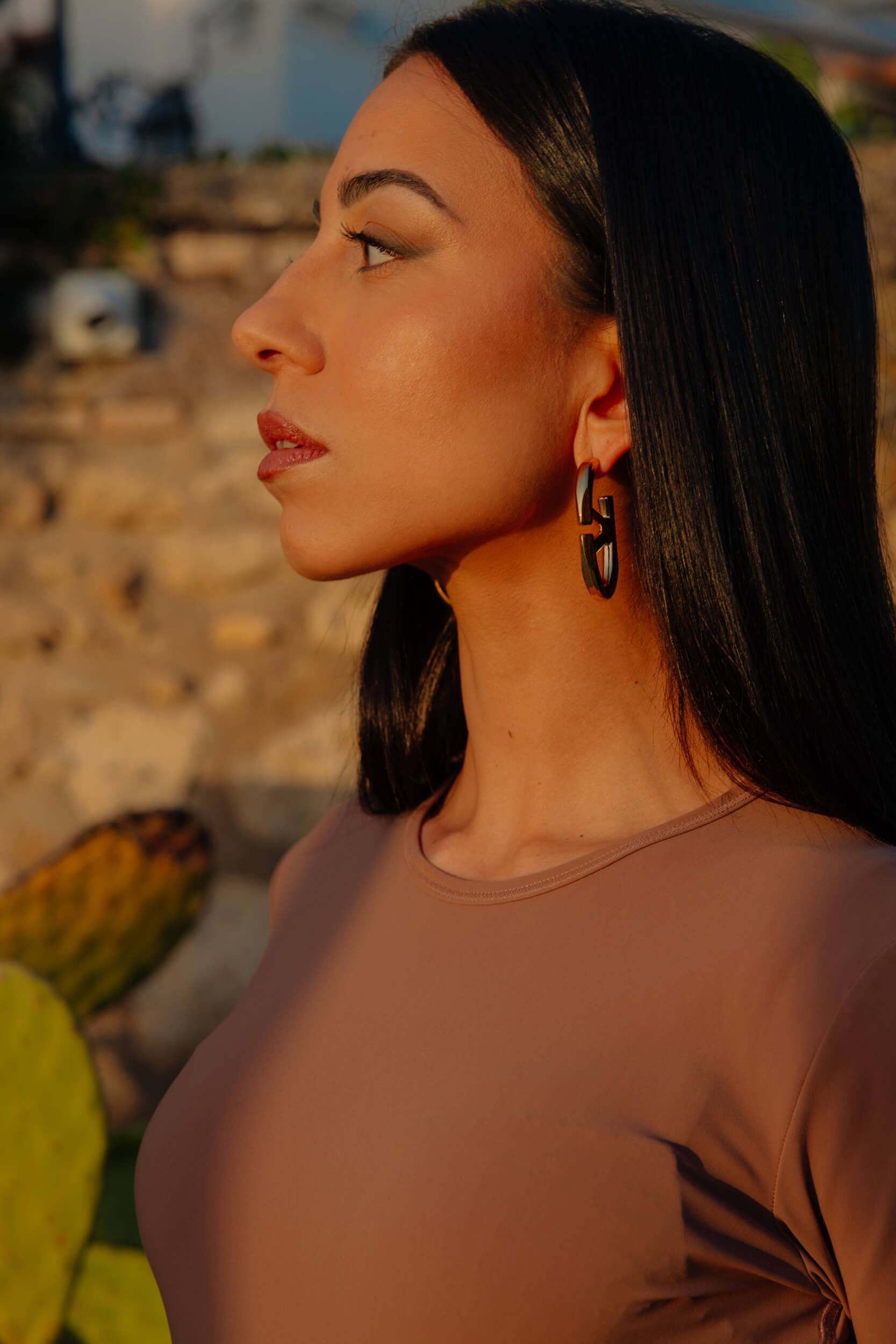
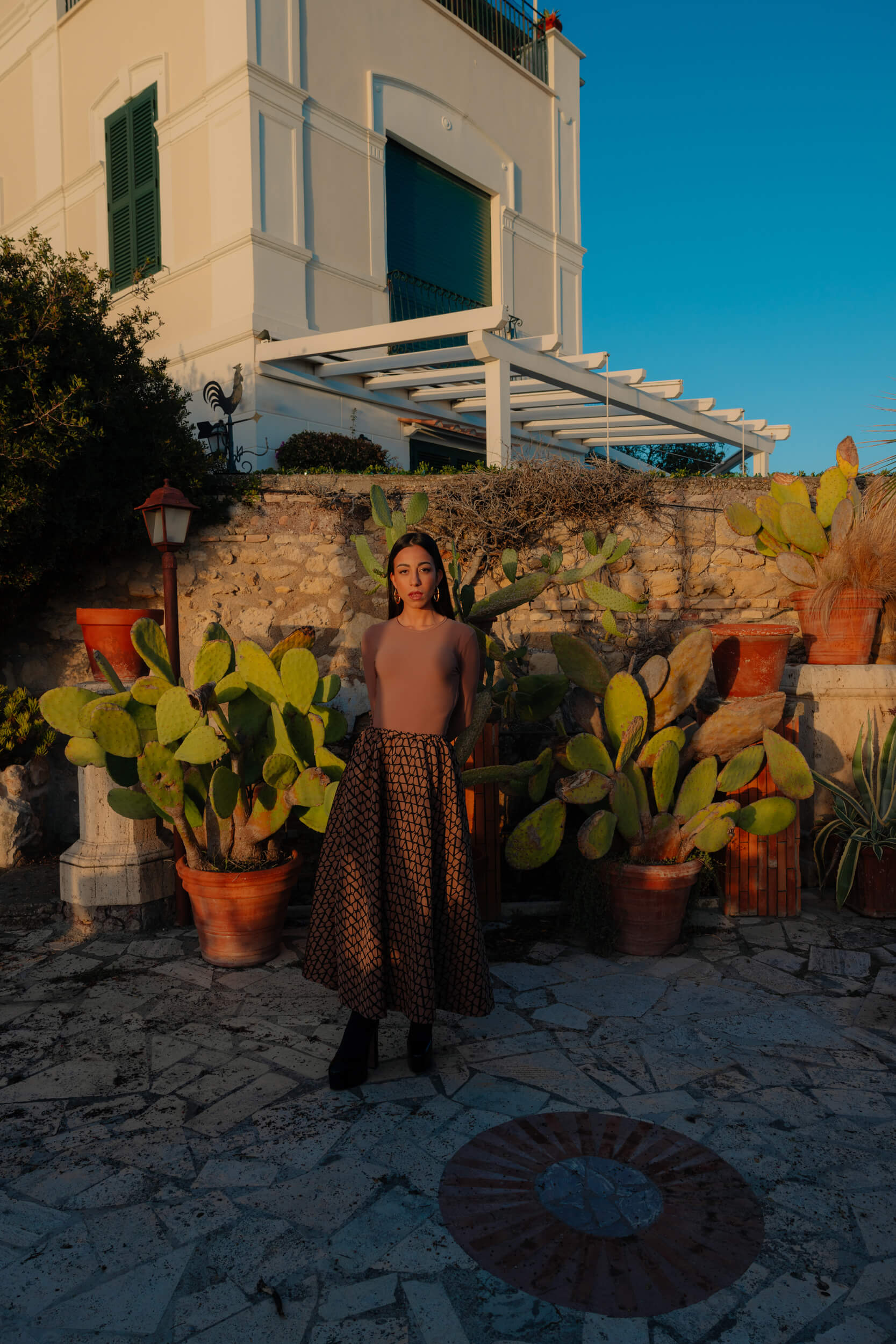
In 2021, Valentino’s makeup line was launched. Were you actively involved in this launch? And what impact do you think it had on the Maison’s creativity?
Since I was a child, I dreamed of Valentino’s makeup line, and I joked about it with my father a lot, asking him, “When are we going to do it?”. When L’Oréal acquired the license for Valentino, I was in university, and it often happened that I stopped by my father’s office to study simply for logistical reasons. Many times, I heard the makeup meetings they had: I was super curious, so at some point, I started to actively participate, especially when my father and the DMI of L’Oréal started consulting me, asking, “You’re young, you’re 22, help us, you can be useful“. I represented the typical customer because they were targeting a young audience. I also knew a lot about makeup as a frequent visitor to Sephora, a makeup addict; I knew the market well, so gradually, I started to voice my opinions in those meetings. Even when the formula was still in development, they would send it to my house and ask me if I liked the texture, if it resembled anything else on the market. I sent my feedback in writing, just like product sheets, and I contributed my little bit on those few things I knew back then.
The DMI also asked me to participate in the campaign, having been so actively involved in the product formulation phase, but I had never modeled before! The idea of being a model had never crossed my mind, also for a matter of self-confidence.
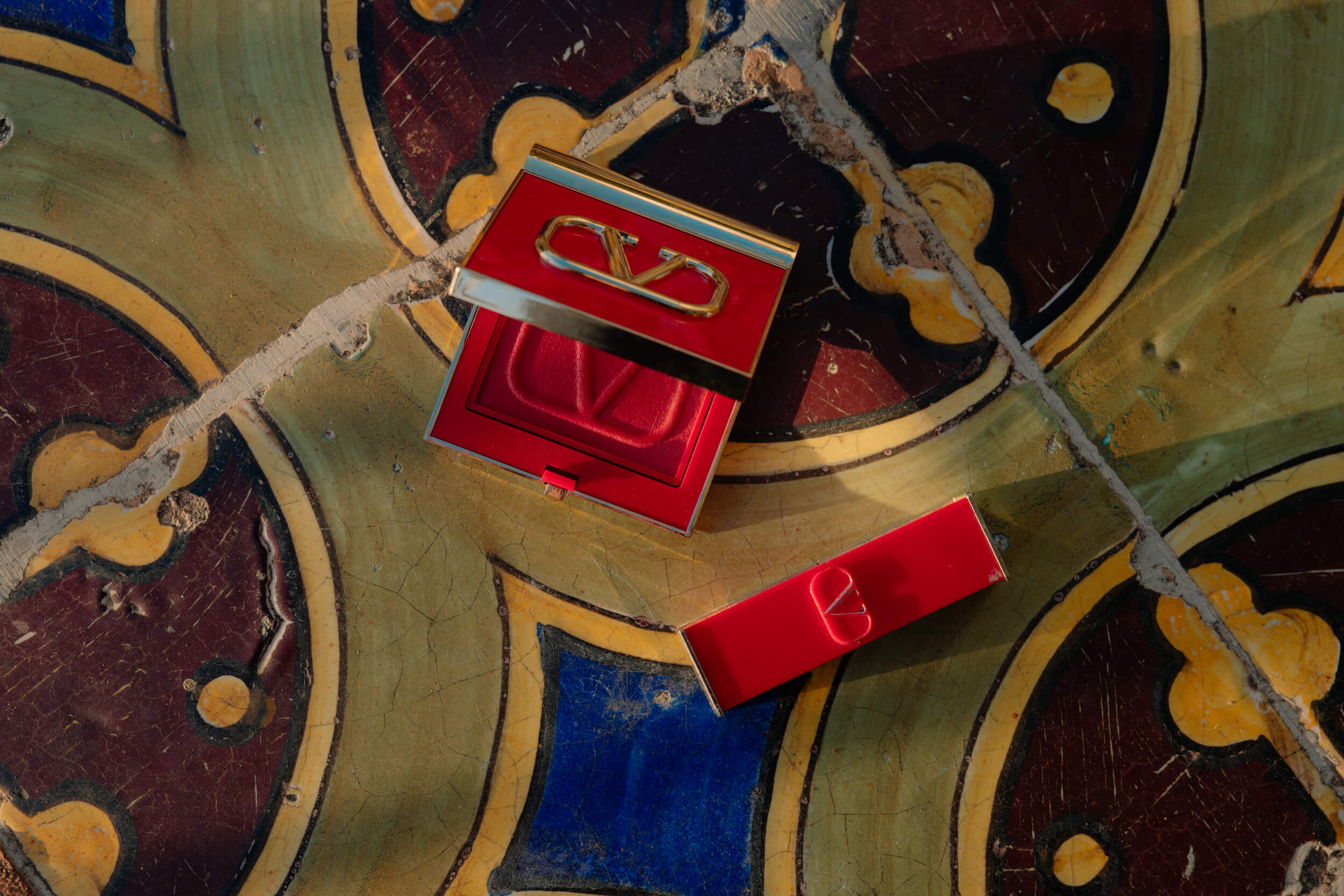
How do you experience the relationship with social media and more generally with appearance, with the external world? Are there times when they seem almost forced to you, or do you generally benefit from them, perhaps using them to convey something meaningful to your followers?
I have often shared my thoughts on topics I considered important and received many negative messages, like, “You’re privileged, you can’t understand these things”. Sometimes, I thought about not writing anything anymore to avoid being belittled and receiving negative comments. Social media, in my opinion, is an important tool to convey important topics, even in one’s daily life, if one wants, when one wants.
Clearly, not my entire life is on social media: if it were, from my feeds, it would seem like I always wear fantastic clothes, I’m always on sets, when the truth is that my life also involves office work, traveling up and down Milan, very normal things, the same things that people who accuse me of being privileged do. I think it’s still important to try to overcome that step and not let oneself be limited because there can always be someone who sees themselves in what you say, and you can always help someone. Regarding important causes to support, every little thing can make a difference.
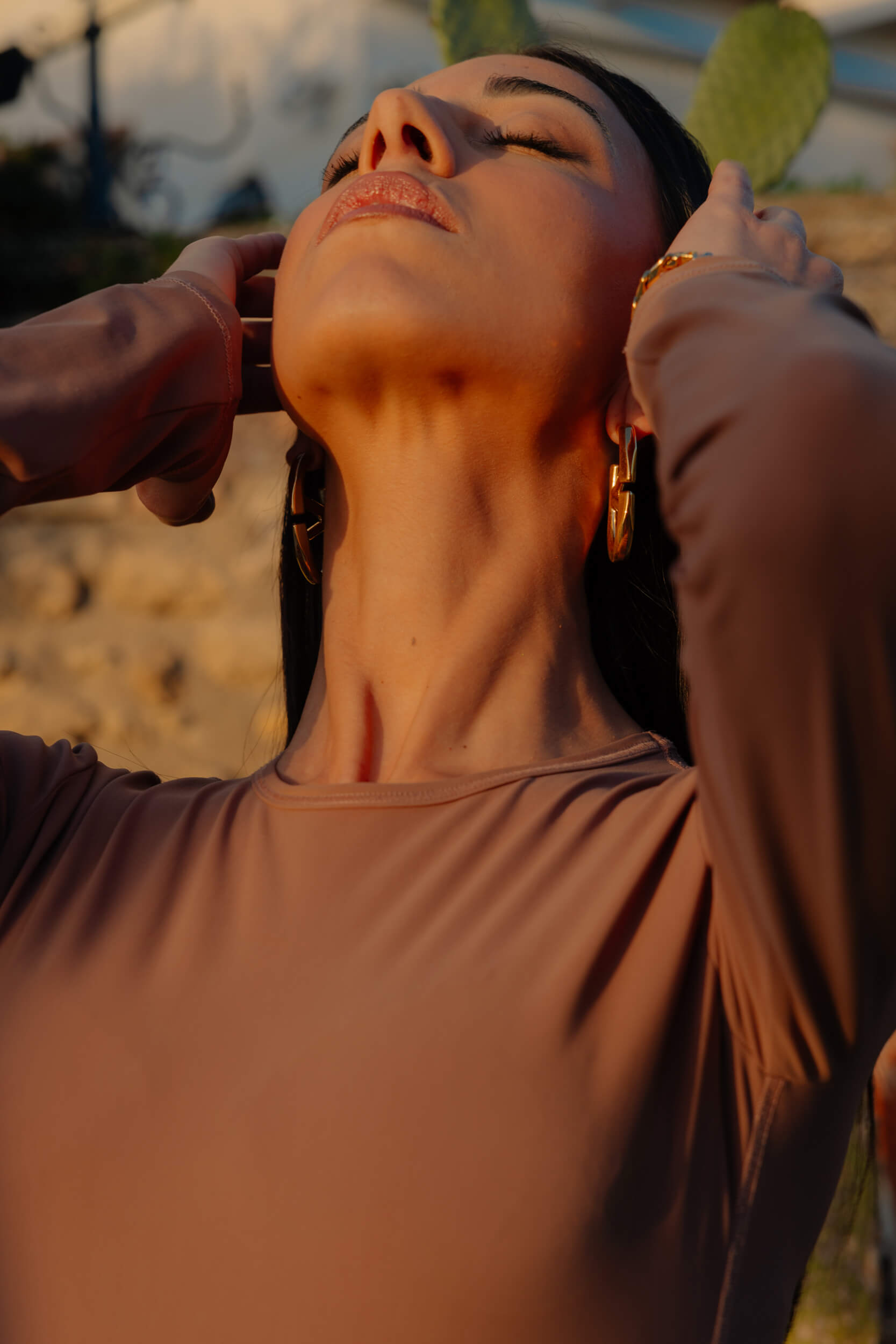
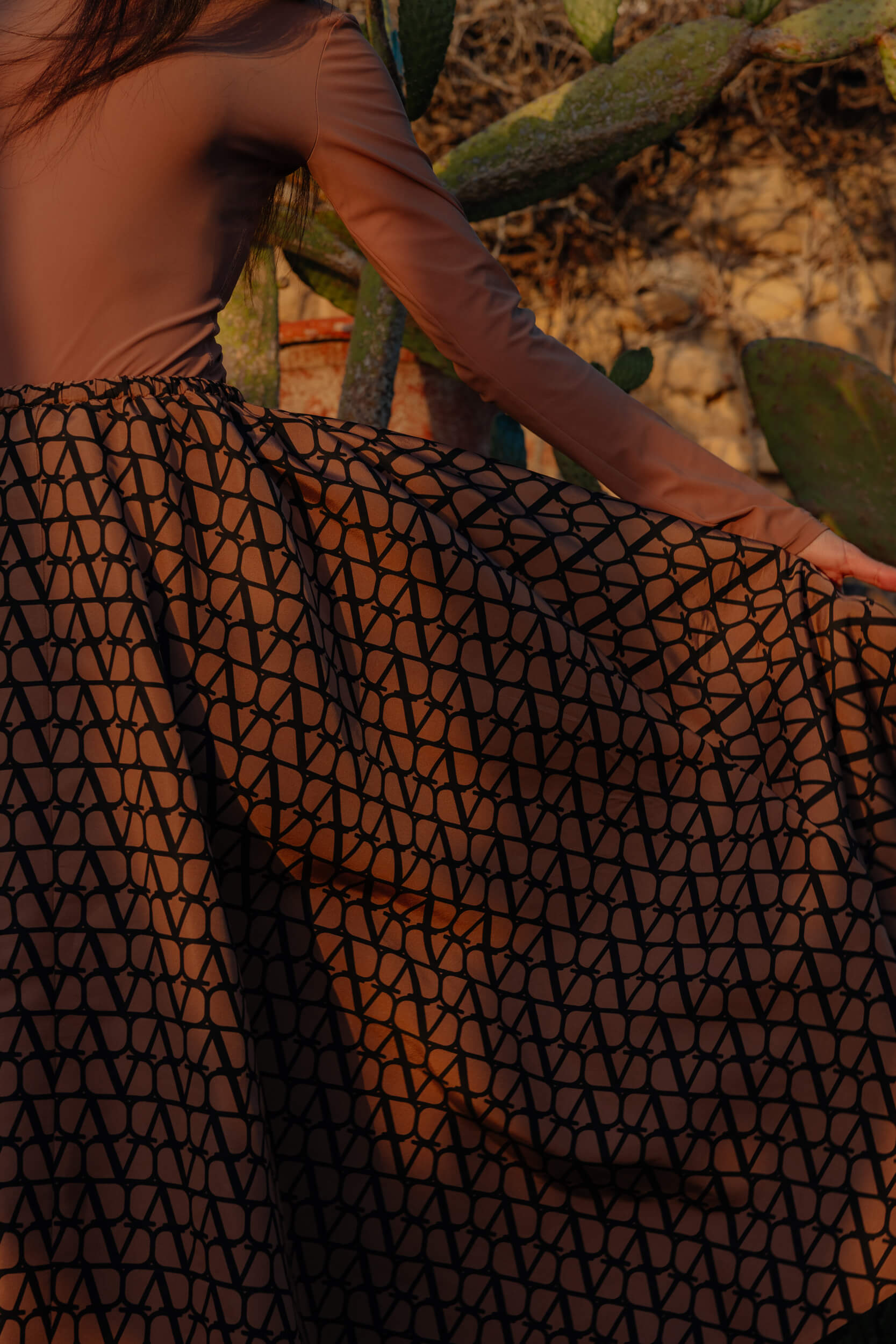
“You can always help someone”
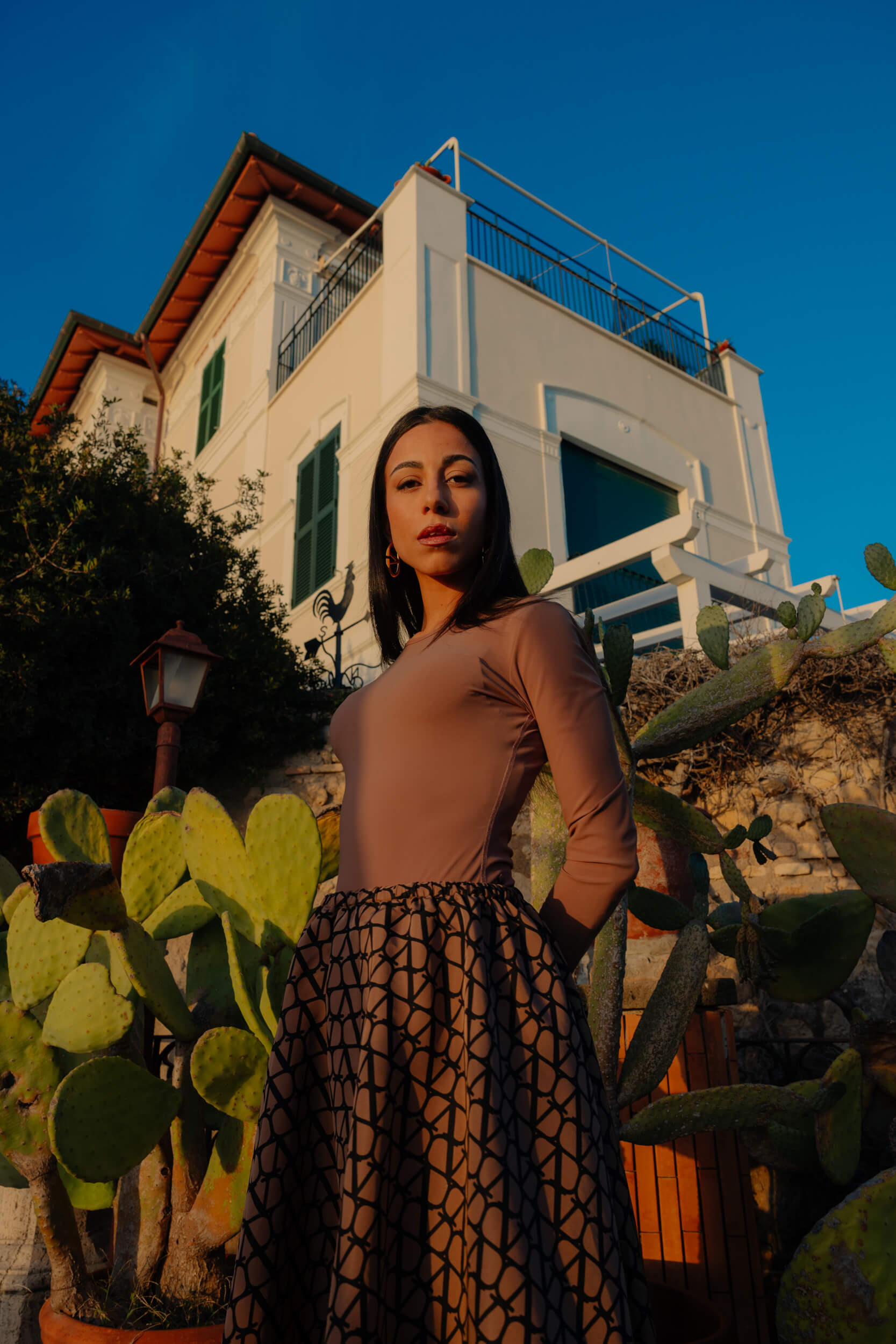
Thanks to Maison Valentino and what your father has transmitted to you, you have grown up in an environment where inclusivity and emotions are at the core of everything. How does this reflect in your work? And how important is it that everything always starts from these values?
I have a humanistic background, I am a dreamer, as I mentioned before, and I feel close to the world of creativity. Therefore, I believe that everything starts from an emotion. Even in seemingly more corporate, stricter sectors, there is always a passion, a need at the base. In fashion, for example, revolutions arise from a consideration that, in turn, arises from an emotion. As my father says, you find inspiration in the most standard and objective things, and everything always starts from the emotion they give you. Even negative emotions are fundamental; anxiety helps you understand what is important, for example.
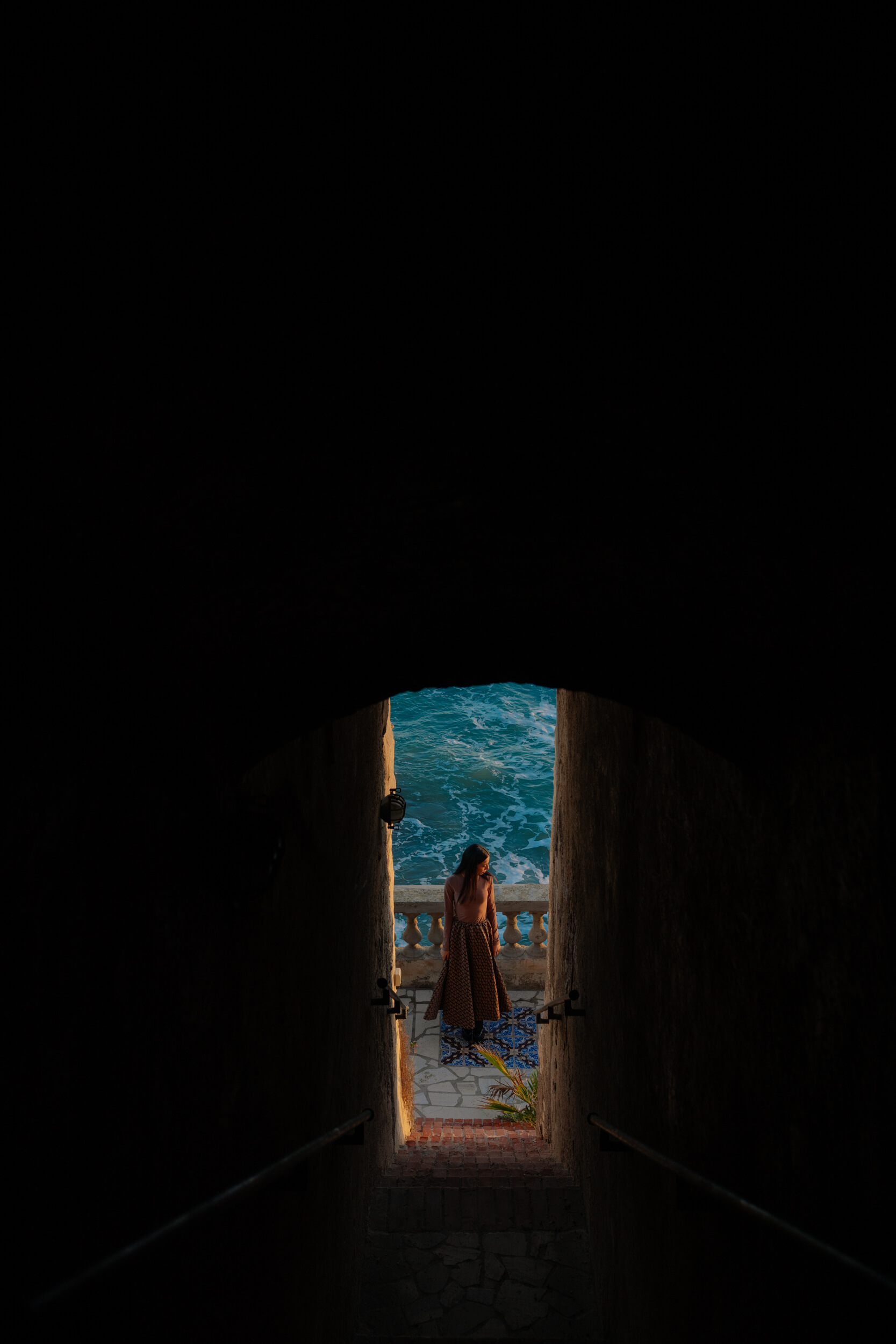
How do you deal with moments when anxiety overwhelms you? Do you find something to learn in negative emotions?
Yes, I am very emotional; I let myself be carried away by emotions, but I think it’s a good thing because there is always something positive on the horizon. At that moment, you might not believe it, but what keeps me going is the thought that I will be more aware in the end. Often, it’s a bit of a burden for sensitive people to feel so much, but it’s also true that you wouldn’t understand many things, many nuances. This also applies to work: every inspiration, whether for a personal or work-related decision, stems from a need or emotion.
Home is not just a place. What does “home” mean to you?
For me, home is primarily the people, the right ones. The physical place that feels most like home to me is the sea, particularly Nettuno, where I was born.
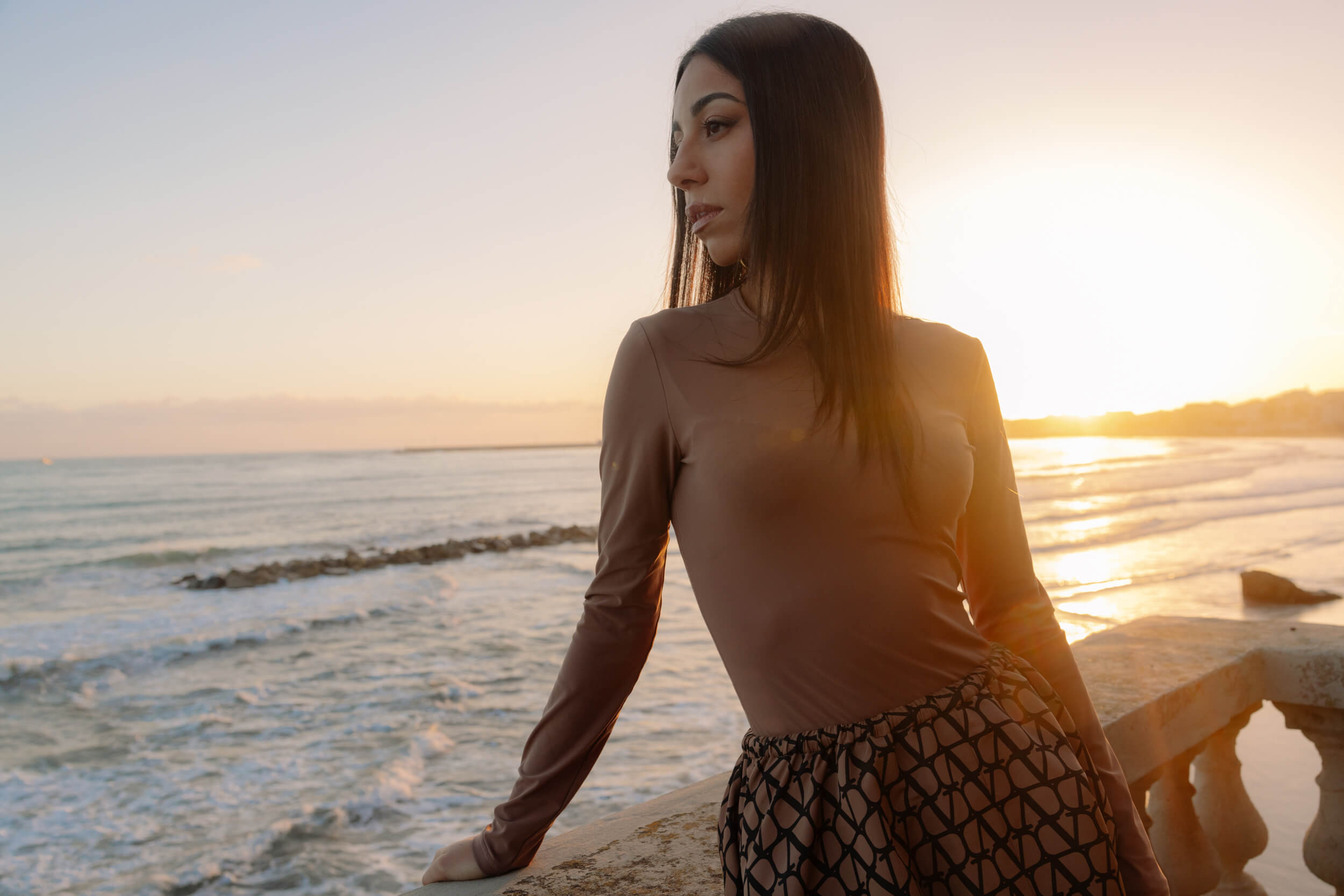
“The people, the right ones”
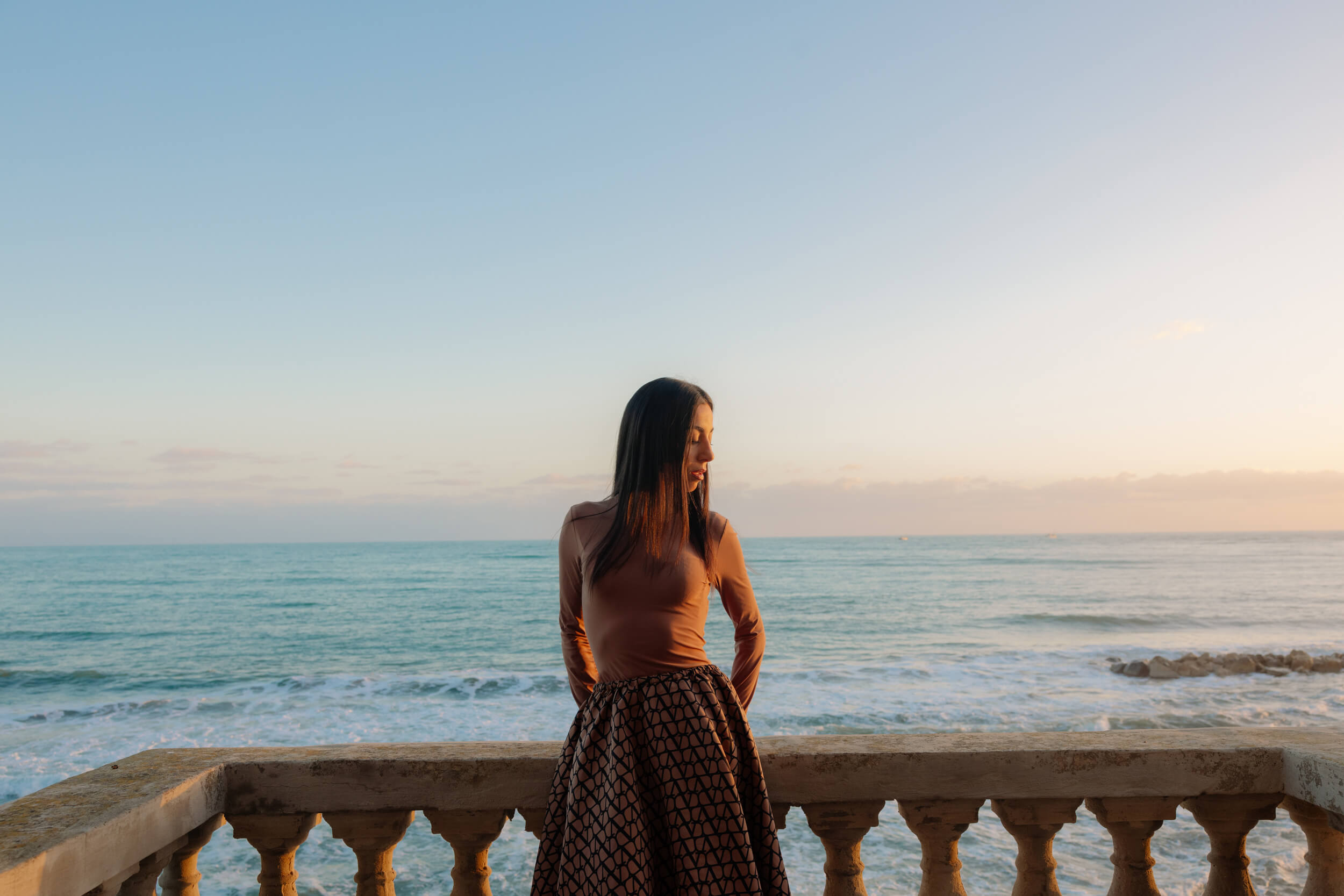
When you are here, in Nettuno, by the sea, how does your time and space transform?
What they say about Milan is true, that it’s much more fast-paced, while here is much more slow life. I go along with this stereotype. However, moving back and forth between Milan, Rome, and Nettuno has been helpful because I’ve grasped the positives and negatives of all places: time here has been the most precious for me because returning made me appreciate more what I had and took for granted. When you leave the place where you grew up, coming back occasionally gains added value, and time and space change because it’s like seeing things you had never seen before, especially when you tell others about your home who don’t know it. Returning home even for a few days recharges me.
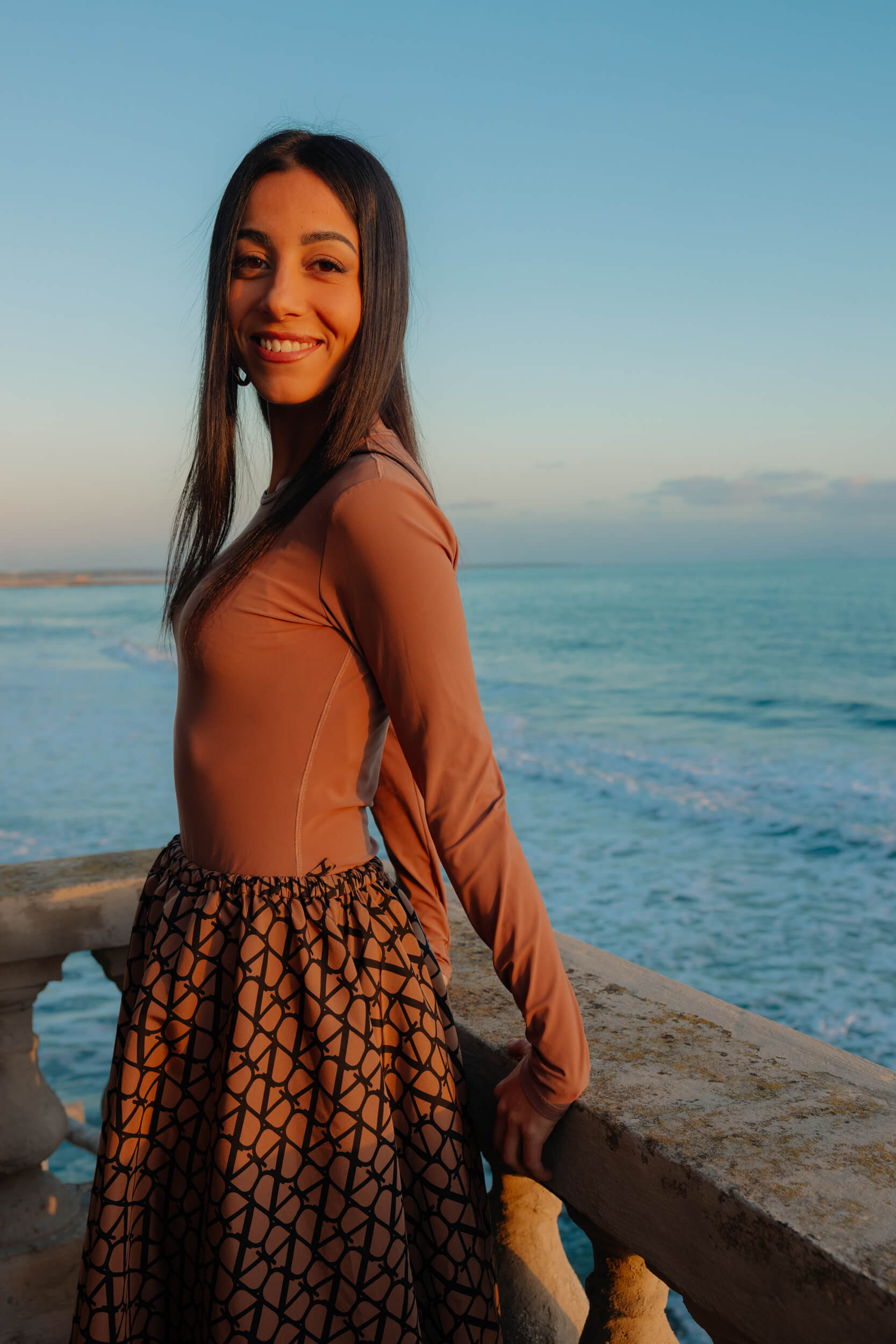
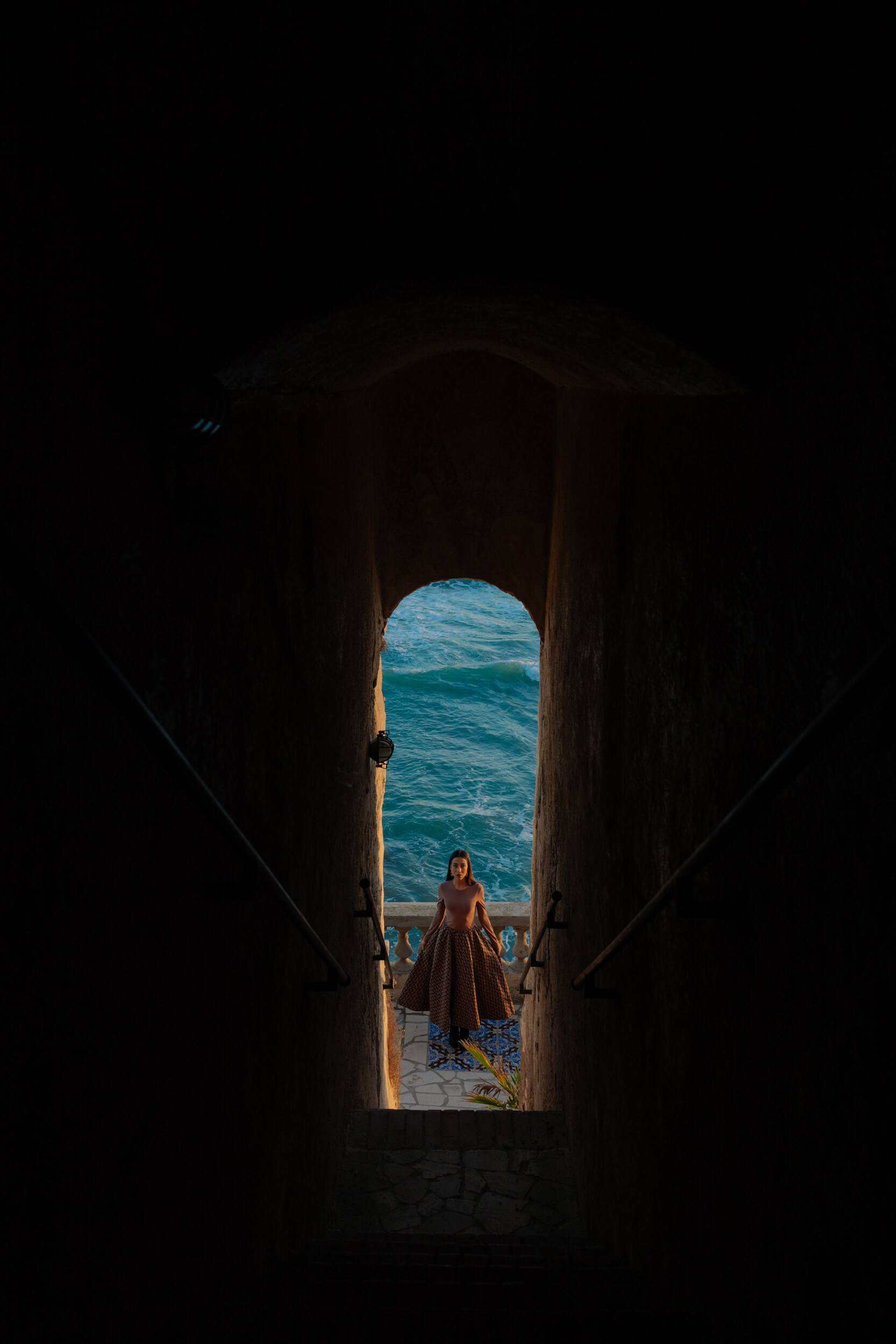
What does it mean for you to feel comfortable in your own skin?
Feeling comfortable is fundamental for me because often you are told that you look good in a certain way, but in that particular way, you don’t see yourself because it’s not part of your personality. For example, I have always seen myself well with red lipstick, and when I don’t wear it, I feel less at ease, less confident. Feeling comfortable, in my opinion, means having that extra confidence that allows you to face even the small daily challenges with more confidence. When you see yourself well, not only do others see you better, but you also become more credible in what you do.
Feeling comfortable in your own skin means a thousand things, but it has to start from you. Physically, I haven’t changed since I was a teenager, but back then, I was much more insecure, that’s the difference, and I would never have done a photoshoot. Now, it’s different: I’ve learned that if you always show others your flaws, they will only see those and not your positive sides; they will see you as an insecure person.
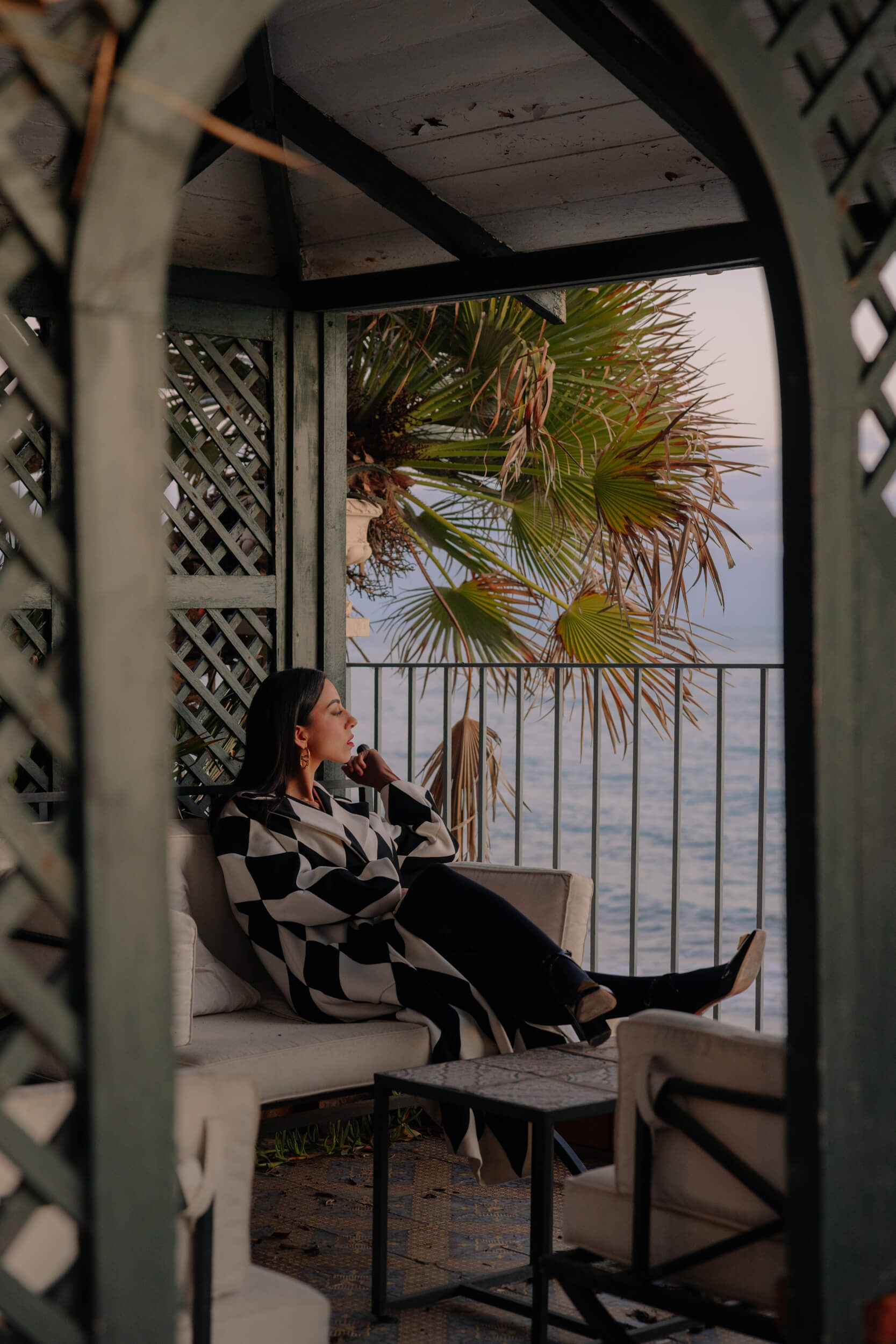
“Feeling comfortable in your own skin means a thousand things, but it has to start from you.”
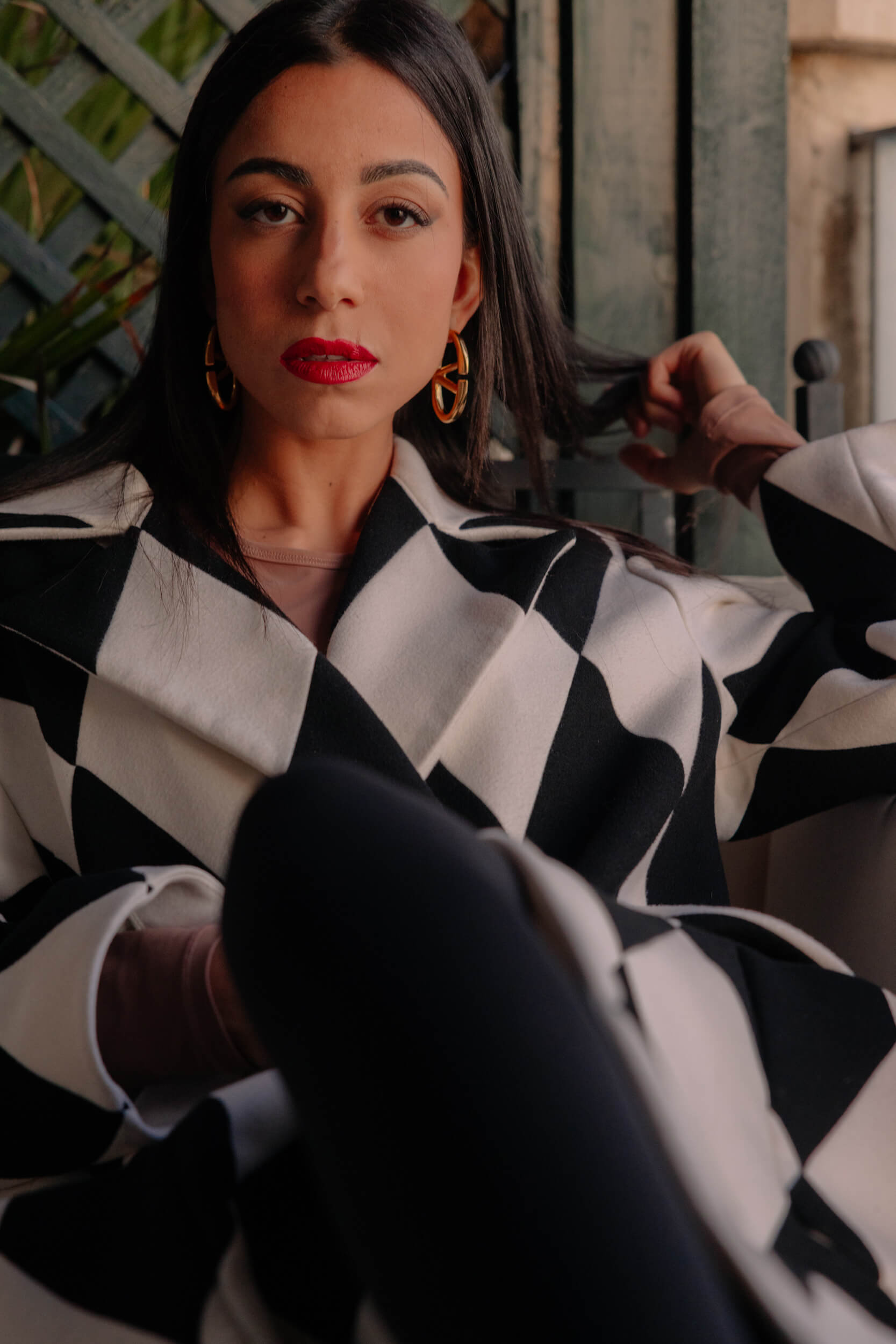
What was the last thing you discovered about yourself through your work?
I was convinced that I was more frightened by changes, but in reality, I managed to face them much better than I thought. Now, another period of changes awaits me, and I am sure I will face them with much more determination. I thought I lacked that “attitude” in facing small things, but that’s not the case. I also thought I would live much worse in solitude; it was, in fact, one of the things that scared me about life in Milan. Instead, I discovered that, despite everything, I can find my balance, spending an evening reading and doing a face mask in complete tranquility.
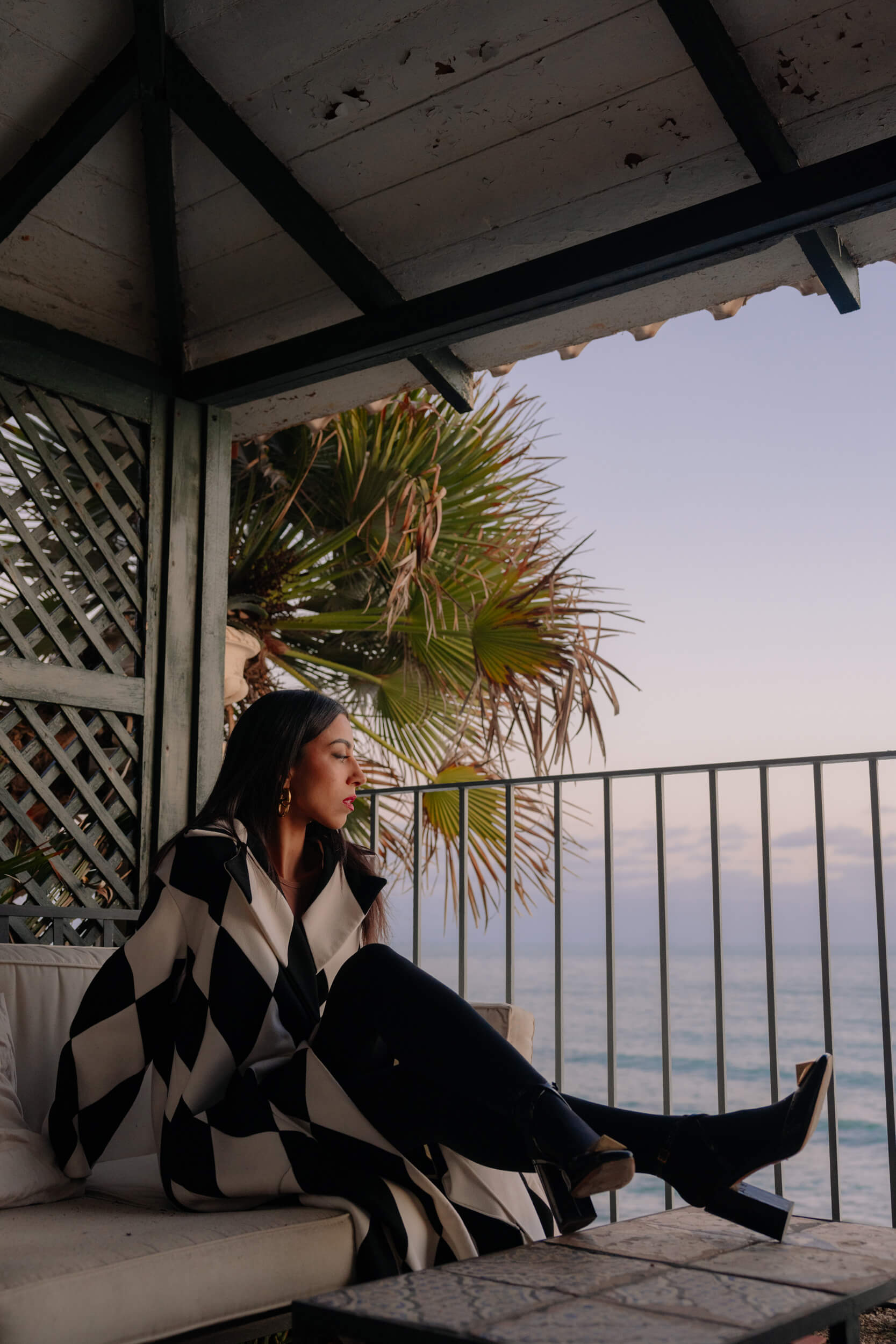
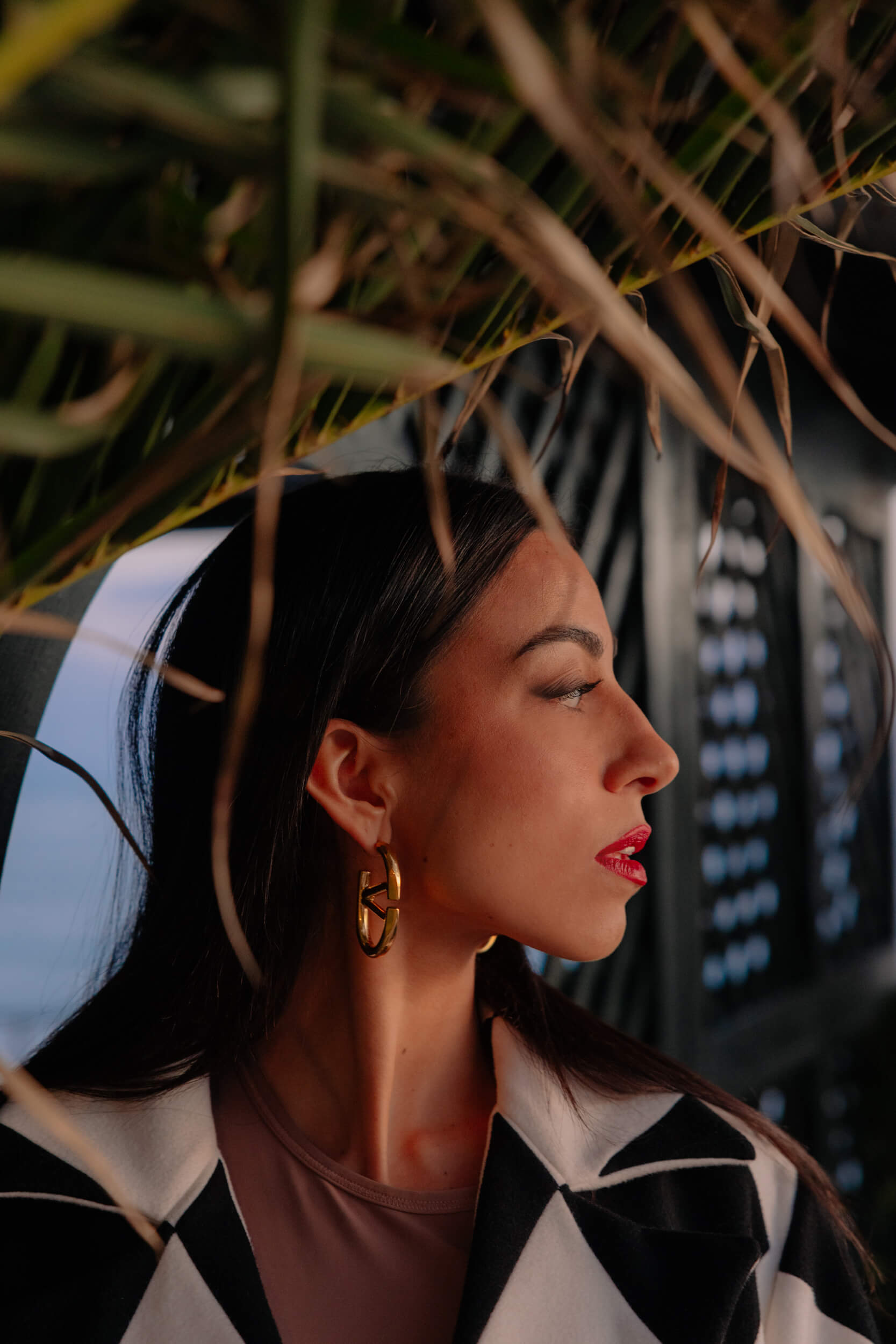
What is your greatest act of rebellion so far?
Not listening to others, probably. Not necessarily being what everyone wants you to be, doing what, according to standards, “must be done at a certain age”. Not following the steps of life and not comparing myself to others and their lives. Difficult, but it’s a realization that makes me feel rebellious, especially because I wasn’t even rebellious as a teenager.
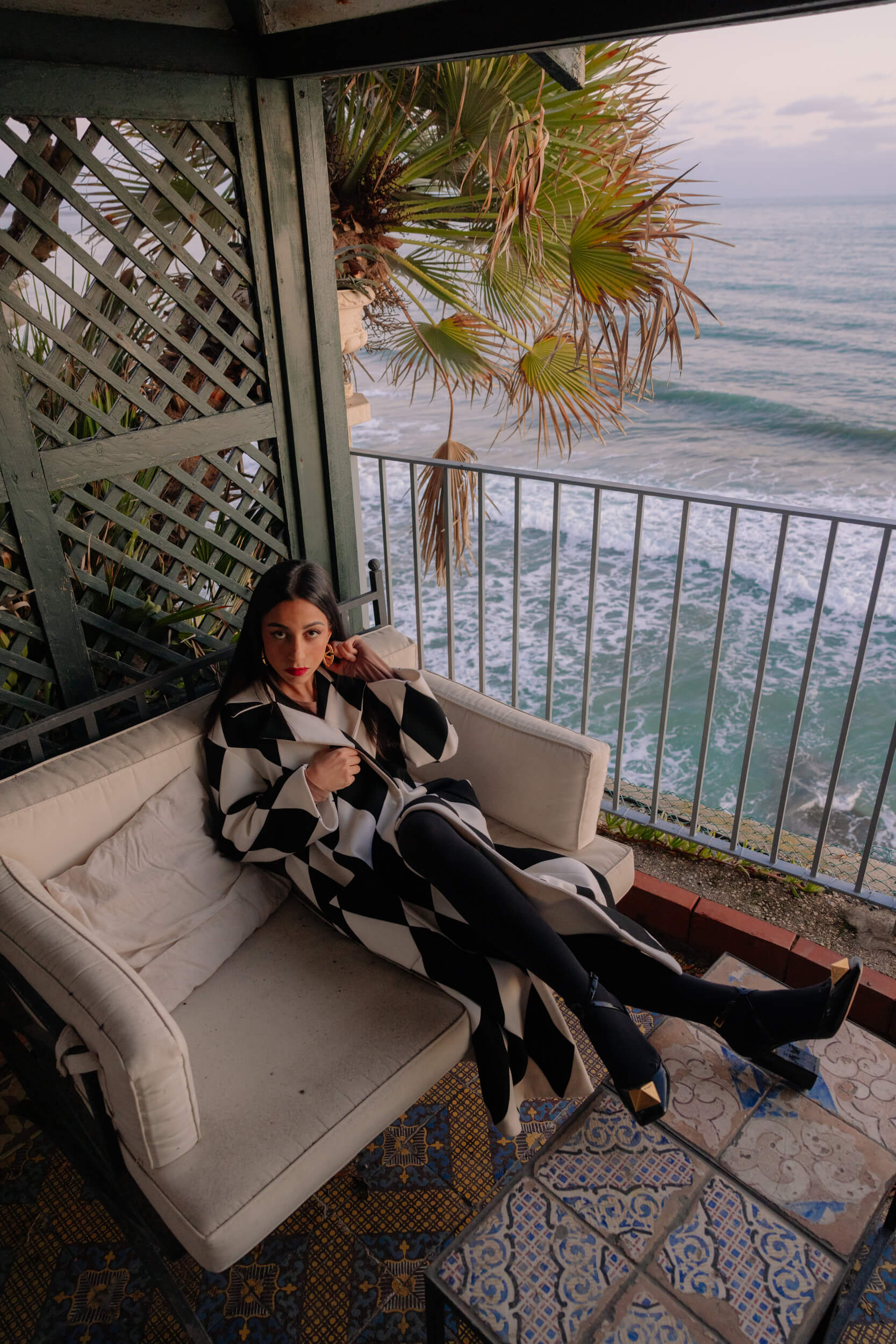
What scares you the most, and when do you feel safest?
A lot of things scare me. More than anything, thinking about my future and the idea of not getting what I want, both personally and professionally. Perhaps more on a personal level. The possibility that the effort I am putting into these years to achieve certain goals may not be rewarded scares me.
What makes me feel safest is the well-being of the people around me: for me, if that’s there, everything is there.
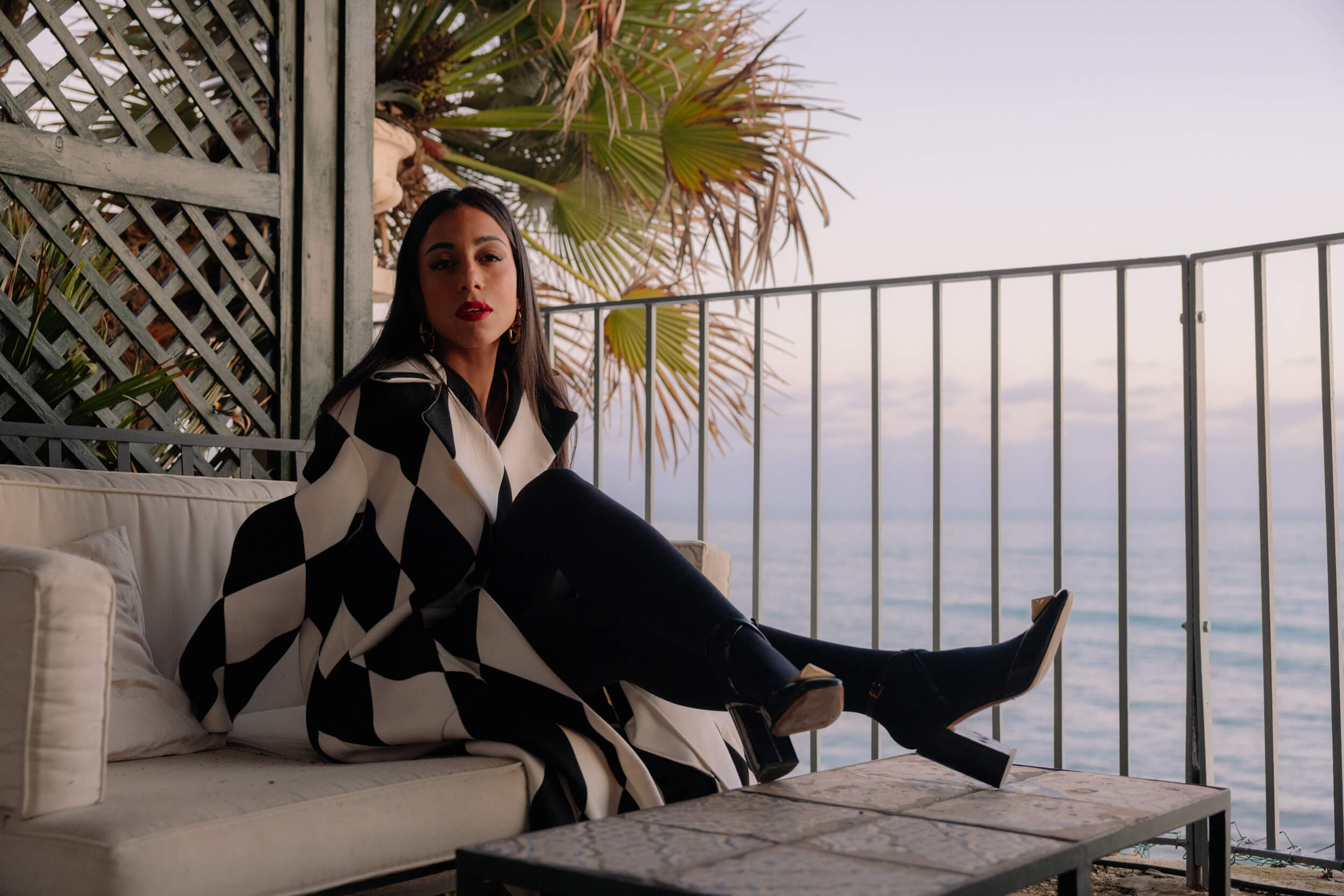
Photos & Video by Johnny Carrano.
Makeup & Hair by Martina Origlia.

